Event Summary
Question Time | Leaders demand more from developers to deliver vision
Greater Manchester’s civic leaders faced tough questions on the city region’s track record on housing, struggling transport infrastructure, and the ongoing delays to the GMSF at this special Place North West event, which gathered all four of the city region’s leaders on one stage for the first time.
Mayor of Greater Manchester Andy Burnham, Manchester City Council chief executive Joanne Roney, Manchester City Council leader Sir Richard Leese, and chief executive of the Greater Manchester Combined Authority Eamonn Boylan were grilled on issues including affordable homes, the city’s future growth, and climate change.
They were joined by Savills director Jeremy Hinds and Edna Robinson, chair of the People’s Powerhouse, for a wide-ranging discussion and to face questions from the 200-strong audience, made up of the region’s senior property developers, council leaders, architects, civic leaders, and planners.
During the debate, Richard Leese said the council was “quite right to make life as tough as they can for developers to make sure an excess of profit isn’t being made,” while criticising volume housebuilders’ approach to placemaking: “they build, they sell, and they get out”. Roney called for more “innovative thinking” to deliver development across the city, while Boylan pointed the finger at central Government for delays to the GMSF.
See below for video and gallery
The event at The Lowry Hotel was sponsored by BECG, Savills, and Wates, and was chaired by Place North West editor Jessica Middleton-Pugh.

The evening began with a question from the chair asking each panellist to highlight their “one thing” that should be the city region’s priority in the future.
- Boylan focussed on the city’s approach to carbon neutrality, arguing the city would “struggle to deliver in the long-term” if sustainability targets were not met
- Burnham’s focus was on transport, with a “London-style transport system with reformed buses, Greater Manchester Rail, and high-quality cycling and walking networks” the key to success
- Leese echoed Burnham’s view on transport, arguing that not addressing these issues would be “the biggest inhibitor of growth” going forward
- Roney’s view was on skills: “If we don’t make a step change in pathways for young people, they won’t be able to take advantage of the growth coming to the city”
- Robinson said getting an act of devolution through parliament and giving more powers to Greater Manchester should be the city’s priority
- Hinds said the focus should not just be on the city centre, with major opportunities to build on the diverse nature of Greater Manchester’s towns
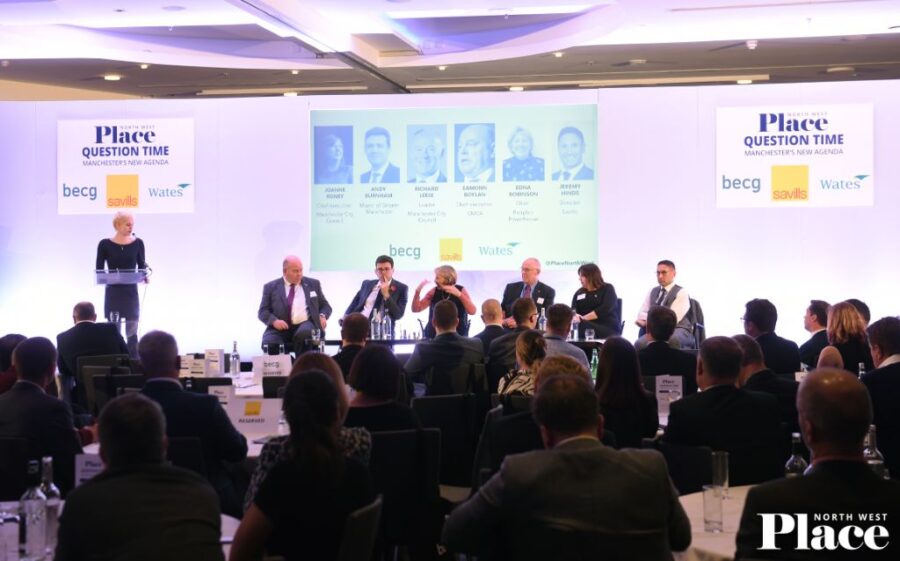
Left to right: Eamonn Boylan, Andy Burnham, Edna Robinson, Richard Leese, Joanne Roney, Jeremy Hinds
A question from audience member Caroline Hanratty, partner of law firm Mills & Reeve, then challenged the panel on the city region’s track record on social housing delivery and views that not enough of these homes are being delivered in the city centre.
- Leese dismissed suggestions developers were “being let off the hook” on areas like Section 106 agreements: “There are suggestions that developers can pull the wool over our eyes, but we know exactly how much residential development costs because we’re doing it ourselves”
- Robinson called for the city council “not to be defensive in the first instance” over housing delivery, and said there was a need for a “broad conversation around the need for affordable homes”
- On city centre development, she added: “People have concerns about what they are seeing, and that they can’t afford it. We need to admit that there’s much more to do”
- Burnham was challenged on his pledge to deliver the Greater Manchester Spatial Framework, which has seen a series of delays
- The Mayor denied promising there would be no net loss of Green Belt during his 2017 election campaign, and reiterated the need to listen to local communities as the GMSF evolves: “Contested planning applications don’t help anyone”
- Boylan said the Combined Authority “recognised the difficulty” of delivering the GMSF but pointed the finger at “incompetent” officials from the Ministry for Housing, Communities & Local Government and “continued failure of the Government to address devolution powers” as a reason for the delays to the GMSF
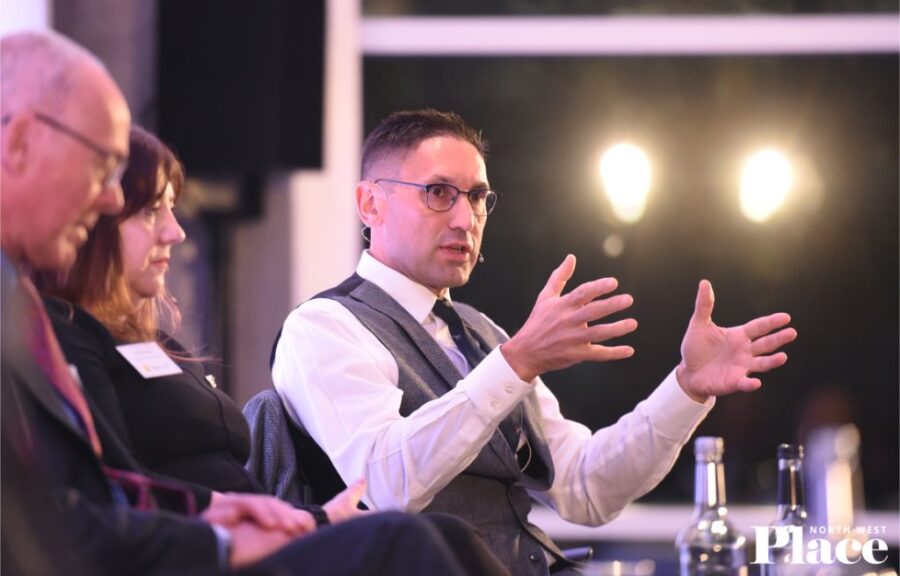
Jeremy Hinds, Savills
Responding to a question on housebuilders, Hinds said the focus should be on “delivering homes in towns that can already absorb them” with the debate over Green Belt against brownfield land being a “distraction”. Leese also criticised the approach of volume housebuilders to delivery and placemaking: “They’re not interested in pushing house prices down… they build, they sell, and they get out”.
Roney argued the council had been “clear” on delivering affordable homes across Manchester but also said focussing on just city centre housing delivery was “simplistic” with critics needing to understand there is a “demand for a different offer in the city centre”.
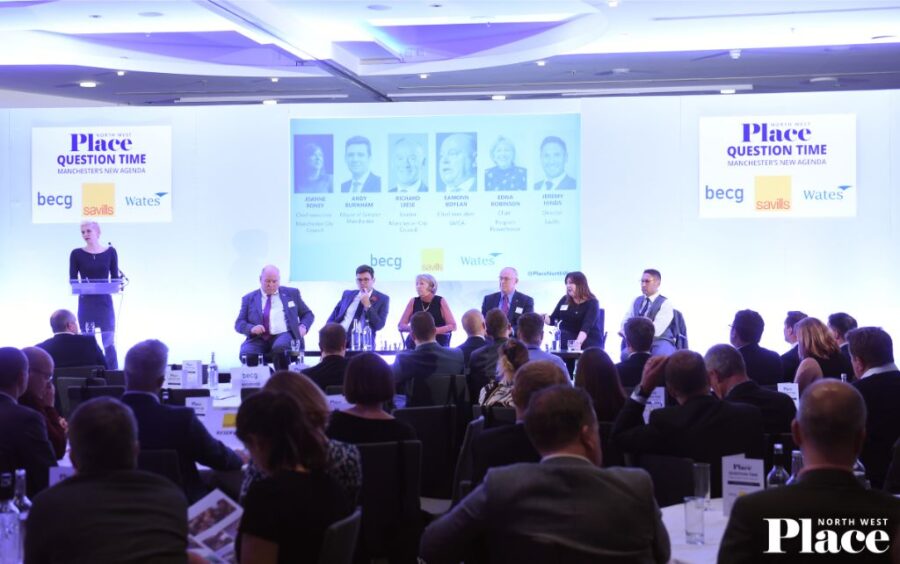
Left to right: Eamonn Boylan, Andy Burnham, Edna Robinson, Richard Leese, Joanne Roney, Jeremy Hinds
An audience question from Kevin Whitmore of BECG raised the issue of Manchester City Council pushing back on development in the city centre, with some developments, including schemes on Shudehill and at Arundel Street, being initially refused by planning committee.
- Leese said that while the number of applications rejected by the committee over the last few years was “virtually none”, councillors had become “more demanding”
- “Politicians are quite right to make life as tough as they can for developers to make sure an excess of profit isn’t being made,” he said
- Robinson said there had been a “mood-change” around accountability: “People are wanting to know who is investing in their communities and why, and where that money is coming from, and where it’s going to”
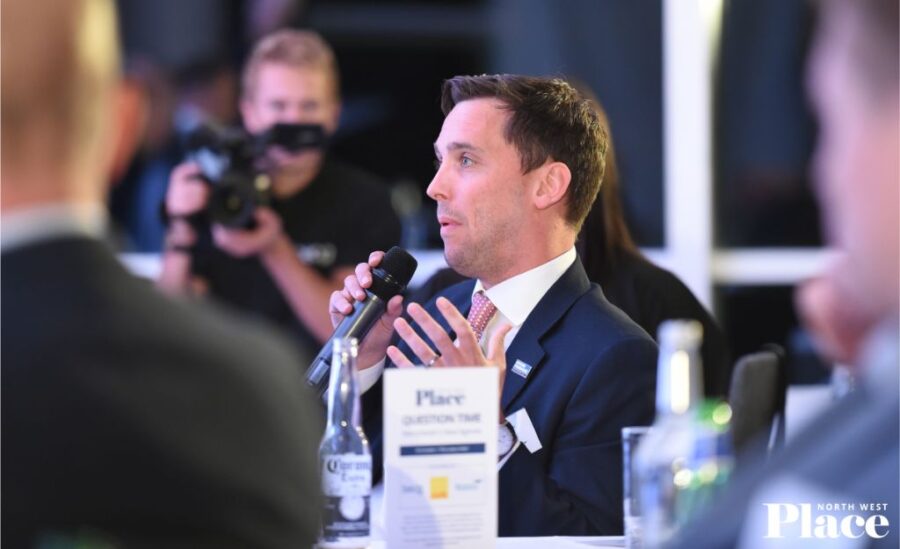
Kevin Whitmore, director, BECG
Asked whether Manchester is seen as a “closed shop” with a close-knit set of developers, architects, and planners, Roney said the city’s focus was on “quality and innovative thinking” while Leese argued there were “far more developers and architects” working in the city now than 10 years ago.
However, Hinds argued: “I don’t see new blood coming into the system, where we can develop genuinely green buildings, for example. It doesn’t have to be Singapore but we don’t seem to have the ability to allow that sense of fresh thinking and novelty into the systems we’ve got. If we want to be better than where we are now, the doors of opportunity have to be flung open.”
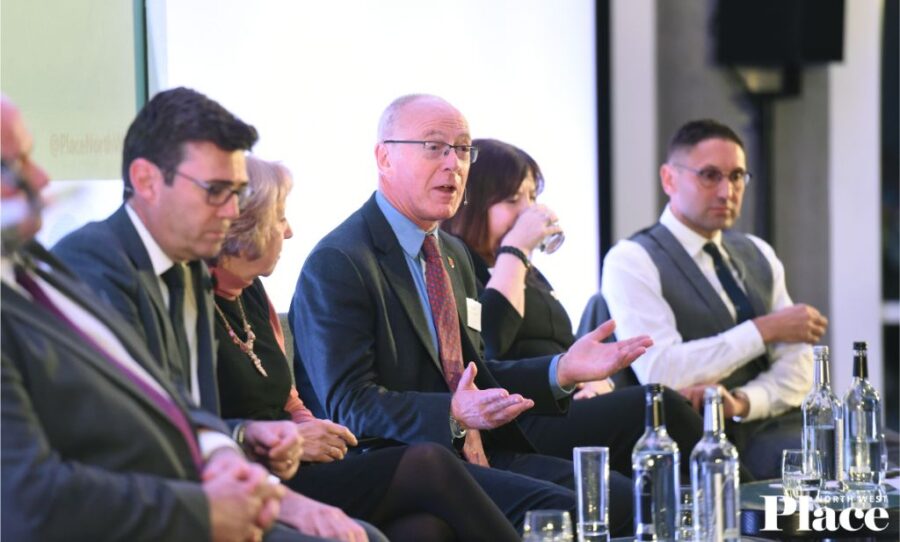
Leader of Manchester City Council Richard Leese
The discussion then turned to transport following questions from audience members Matt Crompton of Muse Developments and Rory O’Connor from RoC.
- Boylan said civic leaders were working on a “proactive and pragmatic investment strategy” and criticised the Government and Network Rail for leaving the Northern Hub, designed to improve capacity around Oxford Road and Piccadilly, “unfinished”
- Leese said a recent meeting with Network Rail was “one of the most depressing 45 minutes” he had spent, with little progress being made on transport issues
- Burnham added the Northern voice on transport was now “louder than it’s ever been” but civic leaders needed to “hold the Government to account” on delivery
- “If we had control of [railway] stations, that’s where we really are moving up to another level and linking it to regeneration. We can’t do that now because Network Rail are very difficult to deal with”
- Responding to criticism around Central Retail Park, where the city council has granted permission for a temporary car park, Leese said: “Traffic on Great Ancoats Street will be there whether there’s a car park or not. The plans actually reduce pollution and will support us making the city more pedestrian-friendly”
- Hinds said the city had previously been built in a “car-friendly” way and called for a “reality check to understand this approach was a mistake”
Audience member Stephen O’Malley of Civic Engineers then pressed the panel on cycling in the city centre. Burnham admitted the current situation was “not making it easy to persuade people to get out of their car” and reiterated the city region’s commitment to invest in “safe, segregated” cycling provision.
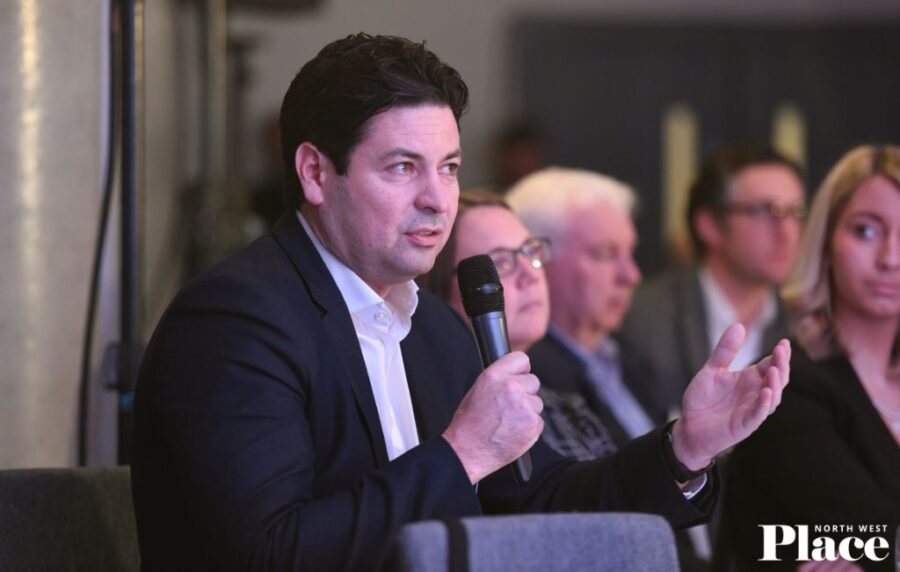
Stephen O’Malley, Civic Engineers
The event closed with a question from Place North West editor Jessica Middleton-Pugh, asking the panellists to list one “crazy idea” for the city region which might come off.
Hinds called for more investment in parks and green spaces within the city centre, while Roney said removing cars from the city would be a goal but could prove to be “impractical”.
Leese called for a vision to transform transport, bringing railway infrastructure underground and transforming viaducts into linear parks. Burnham put forward the “mad but radical” idea of making all public transport free, and also called for a continued focus on bus reform.
Boylan focussed on what the city had already achieved: “Making Hulme a place people wanted to live in was seen as mad, but we did it”. Robinson, meanwhile, called for more focus on making the city region a tourist destination by embracing its green spaces.
Click any image to launch gallery
- Oliver Delucia-Crook, Curtins
- Lucy Lomas, Luma Marketing
- Peter Rowe, Turley
- Jill Burdett, Law of the few
- Charlie Schouten, Place North West, Jonathan Miley, Exterior Architecture, James Onions, Paragon
- Paul Unger, Place North West
- Martyn Headley, Clancy Consulting
- Alan White, Wates
- Colette McCormack, Winckworth Sherwood, and Stephen Knowles, Harworth
- Rob Haslam, Harworth
- Paul Unger, Place North West, Stephen Proudley, Savills, Tim Heatley, Capital & Centric
- Scott Brown, The Lowry Hotel
- Jeremy Hinds, Savills
- Richard Leese, Manchester City Council
- Rory O'Connor, RoC Consulting
- Eamonn Boylan, Greater Manchester Combined Authority
- James Alderson, Investar Property Group
- Eamon Boylan, GMCA
- Credit: Place North West
- Edna Robinson, People's Powerhouse
- Joanne Roney, Manchester City Council
- Jeremy Hinds, Savills
- Jeremy Hinds, Savills
- Benjamin Gaunt, National Grid
- Panel left to right: Eamonn Boylan, Andy Burnham, Edna Robinson, Richard Leese, Joanne Roney, Jeremy Hinds
- James Stevens, Home Builders Federation
- Kevin Whitmore, BECG
- Matt Crompton, Muse Developments
- Jeremy Hinds, Savills
- Guests at Question Time: Manchester's New Agenda enjoyed a hard-hitting debate featuring the main leaders of Greater Manchester on stage together for the first time
- Stephen O'Malley, Civic Engineers
- Joanne Roney (right) with Edna Robinson at Place North West's Question Time event


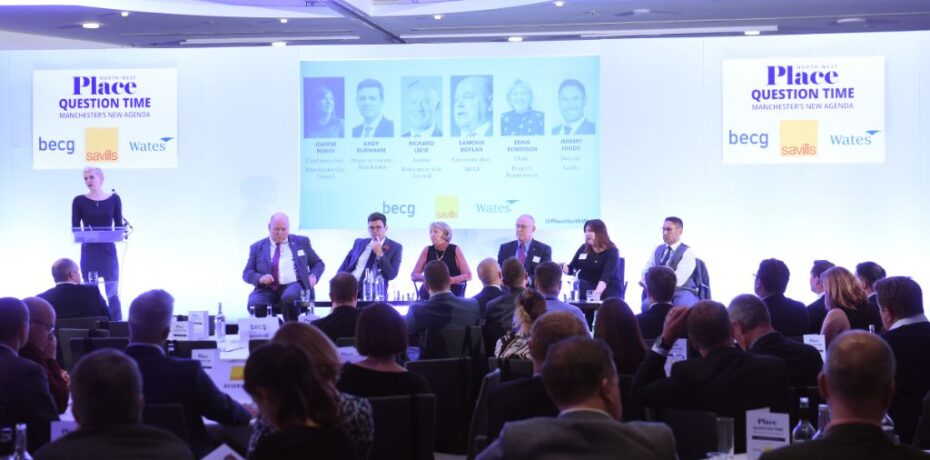
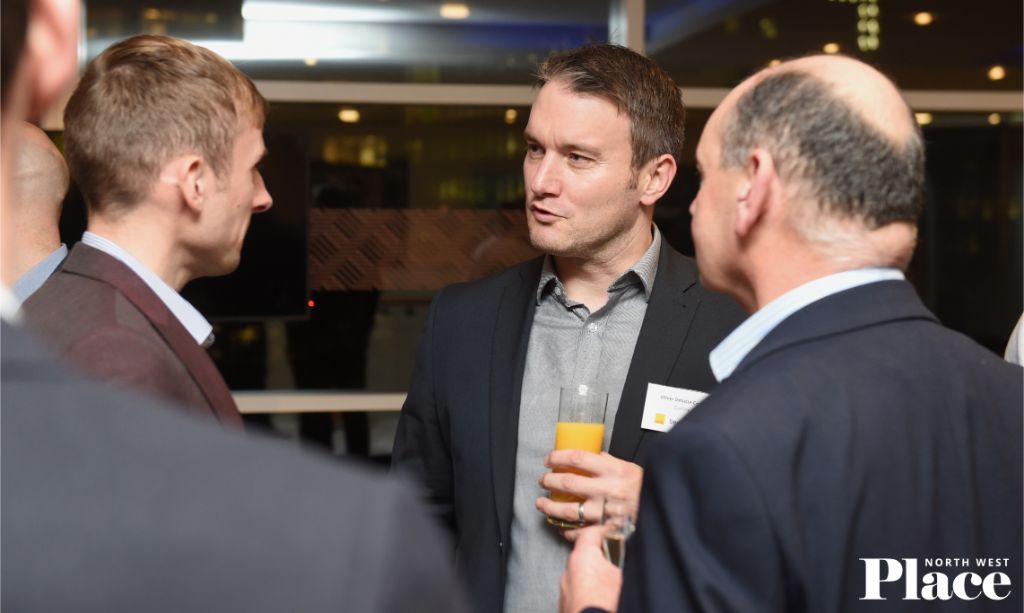
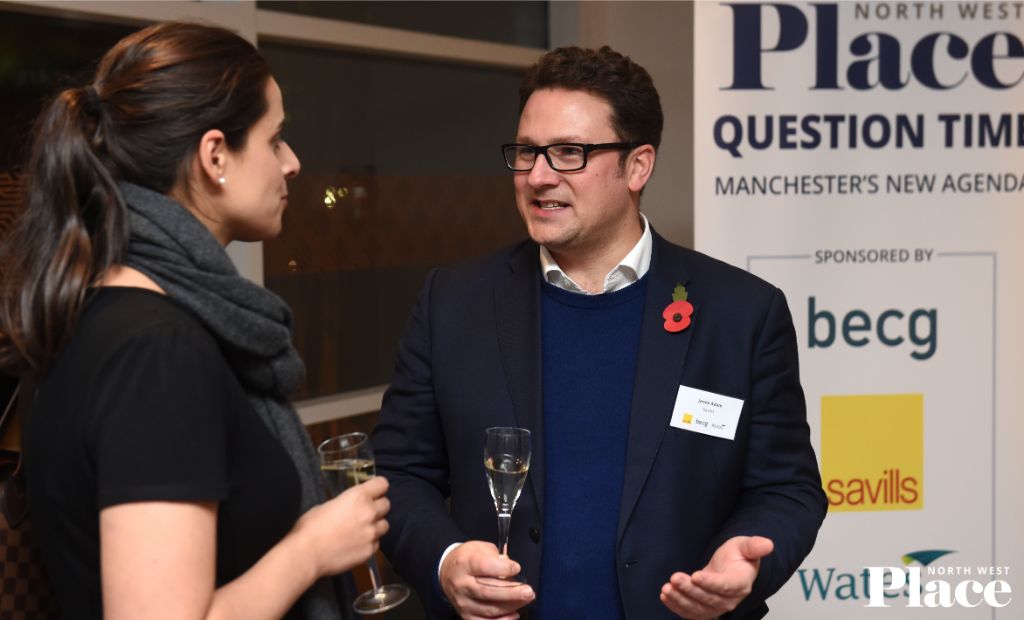

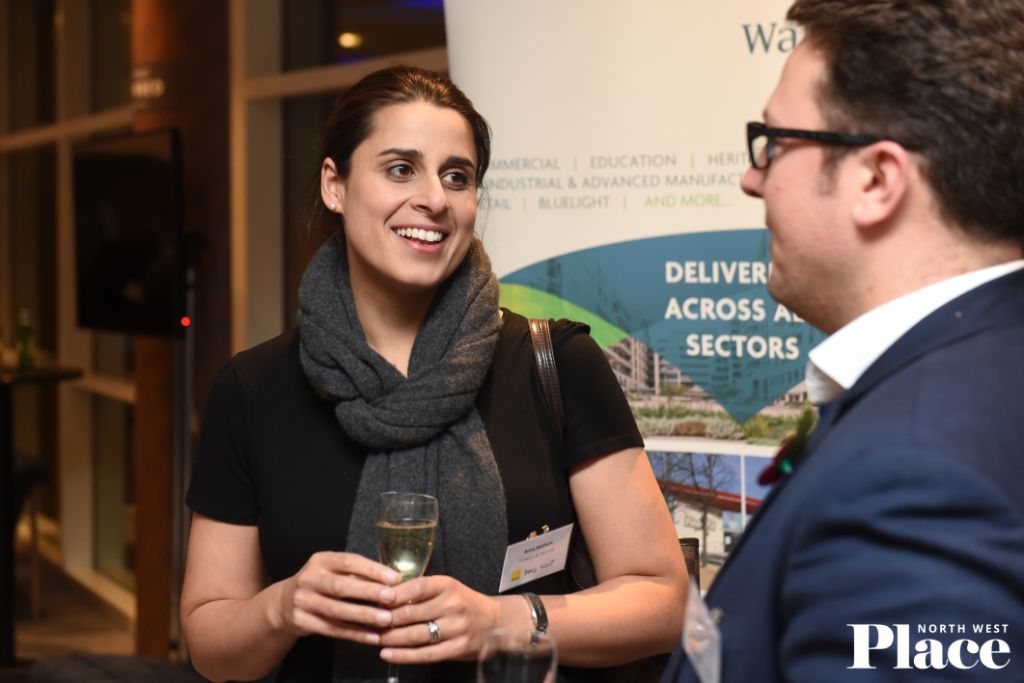
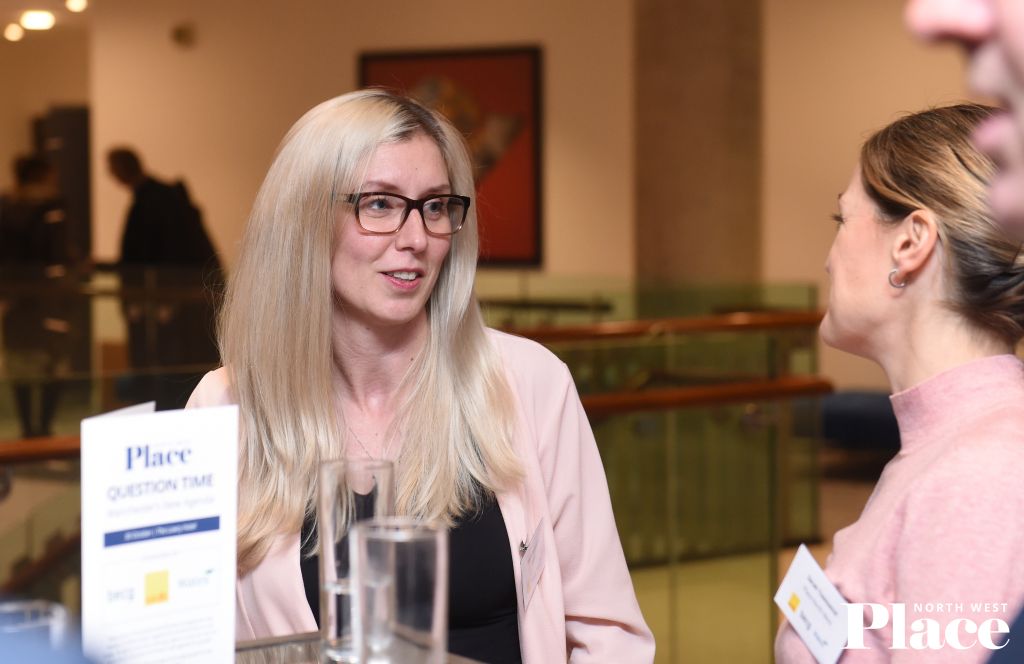
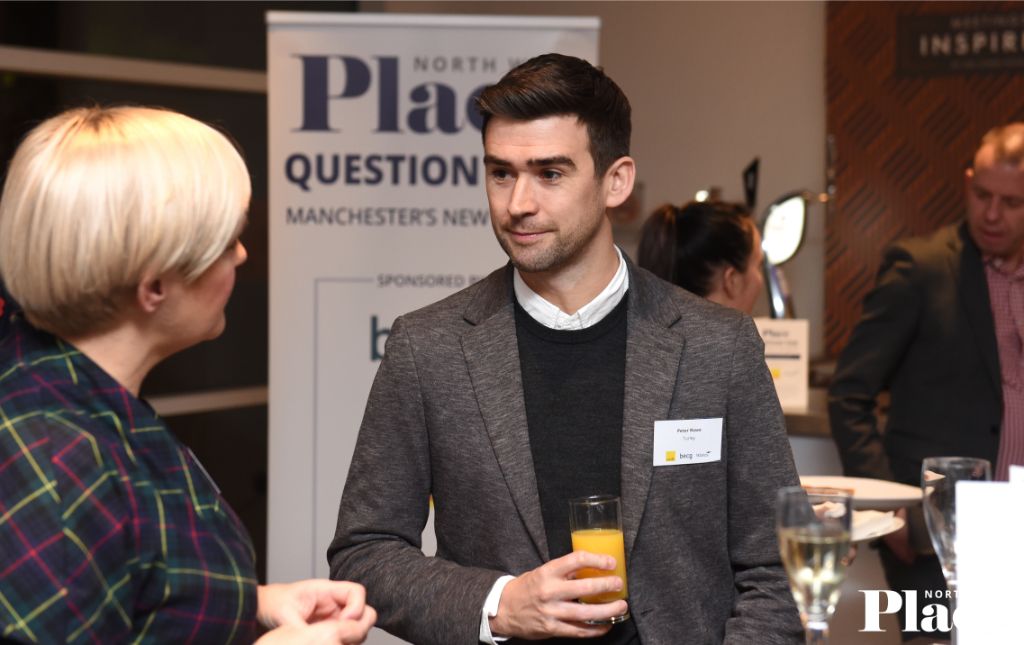

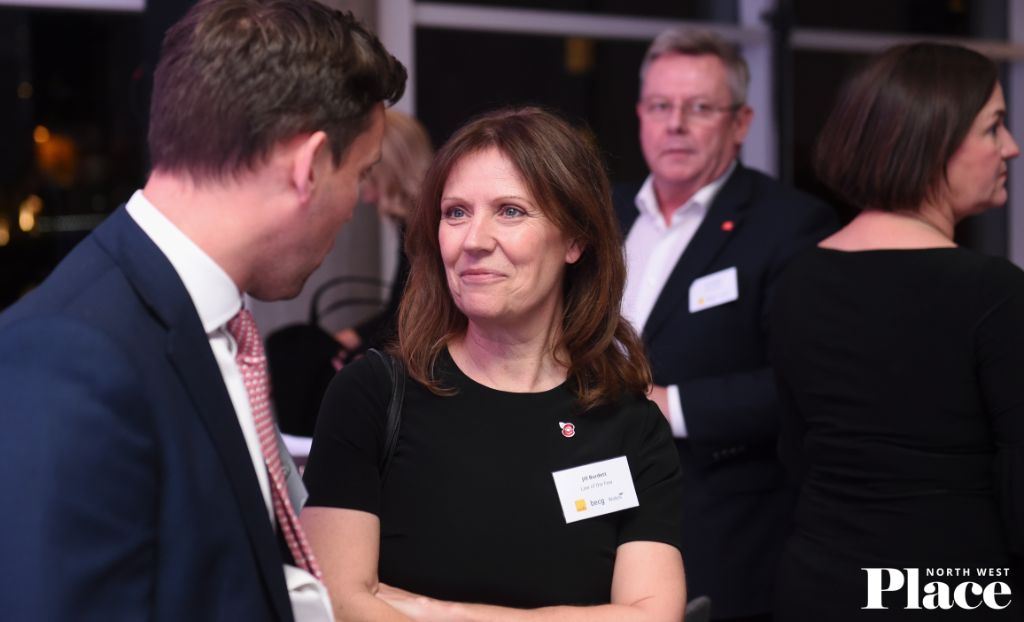
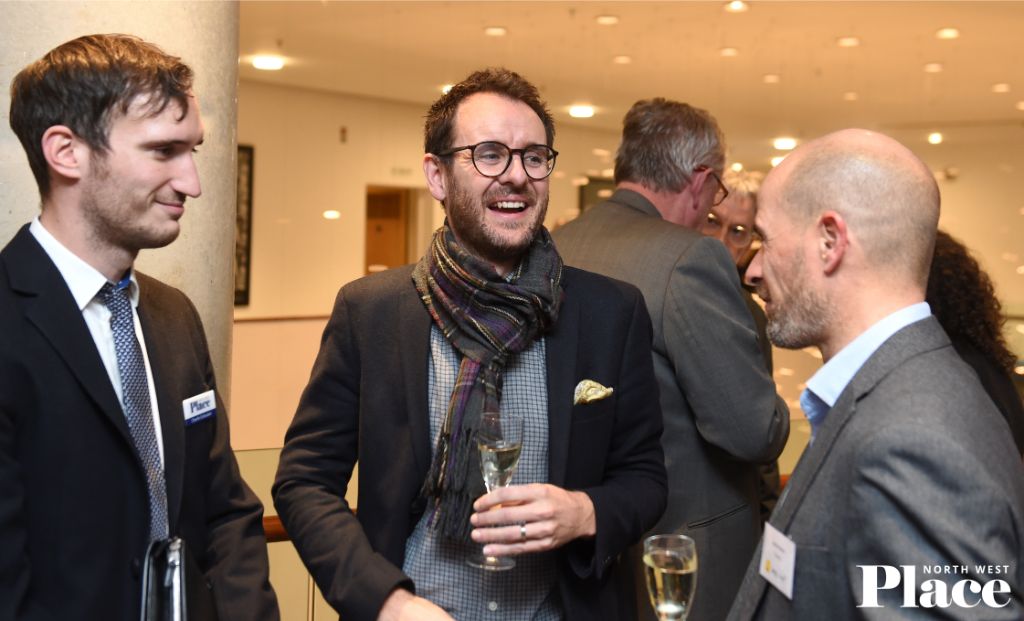


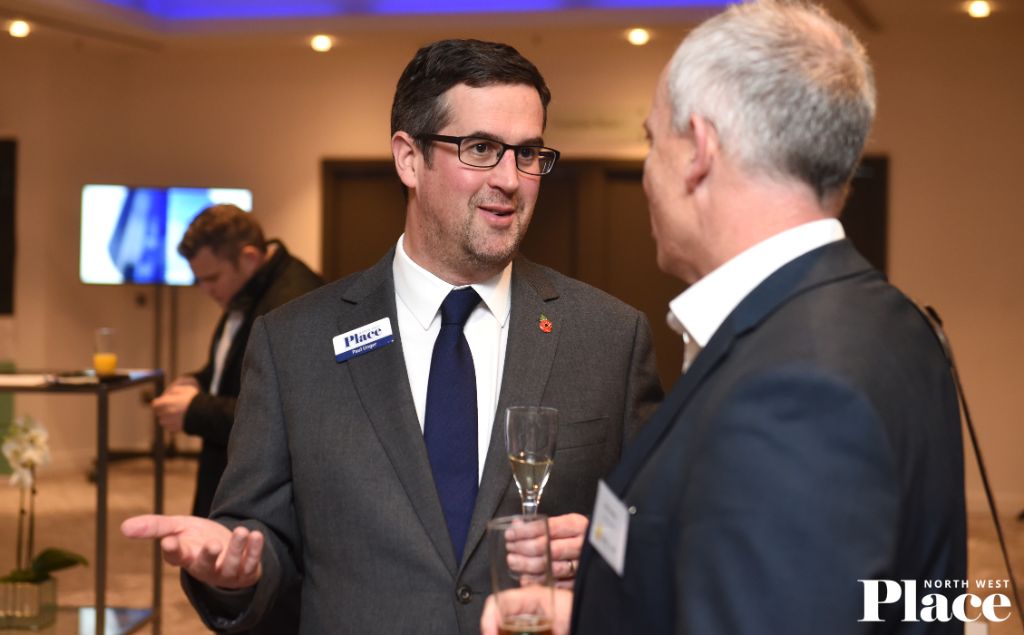




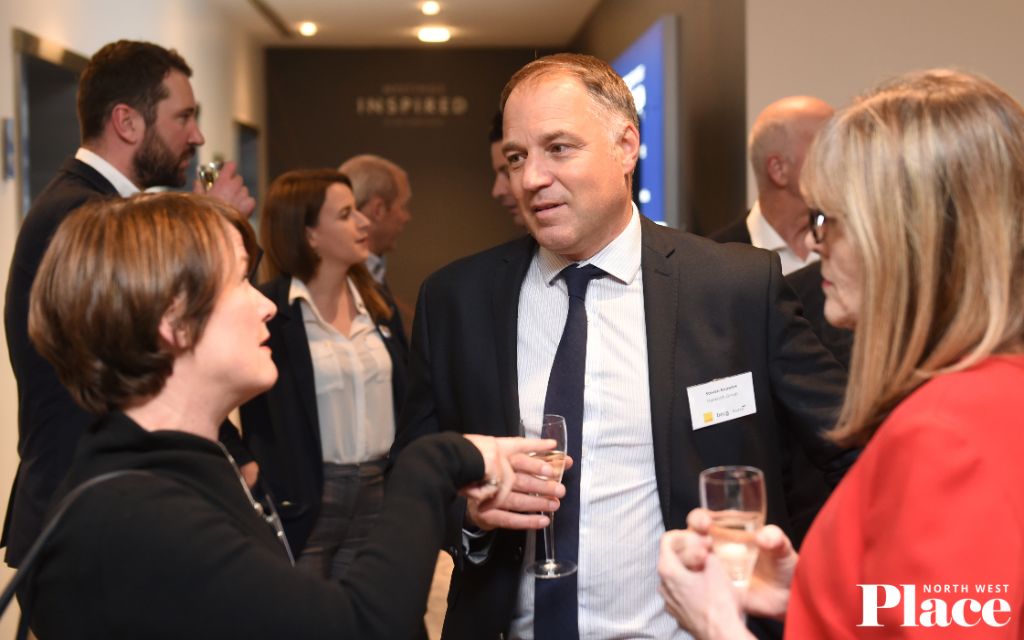



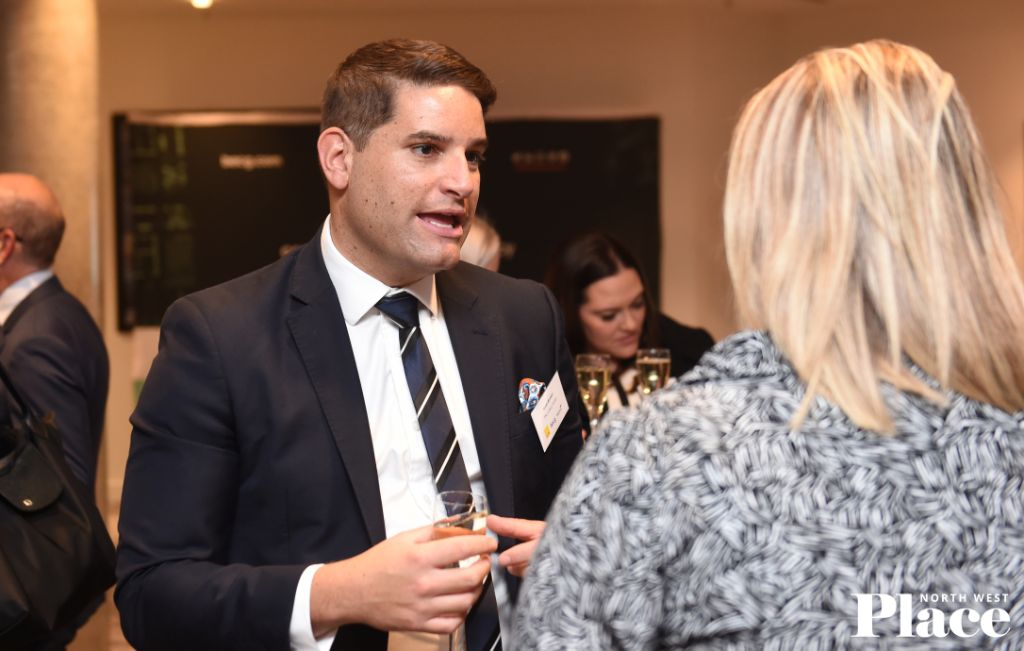
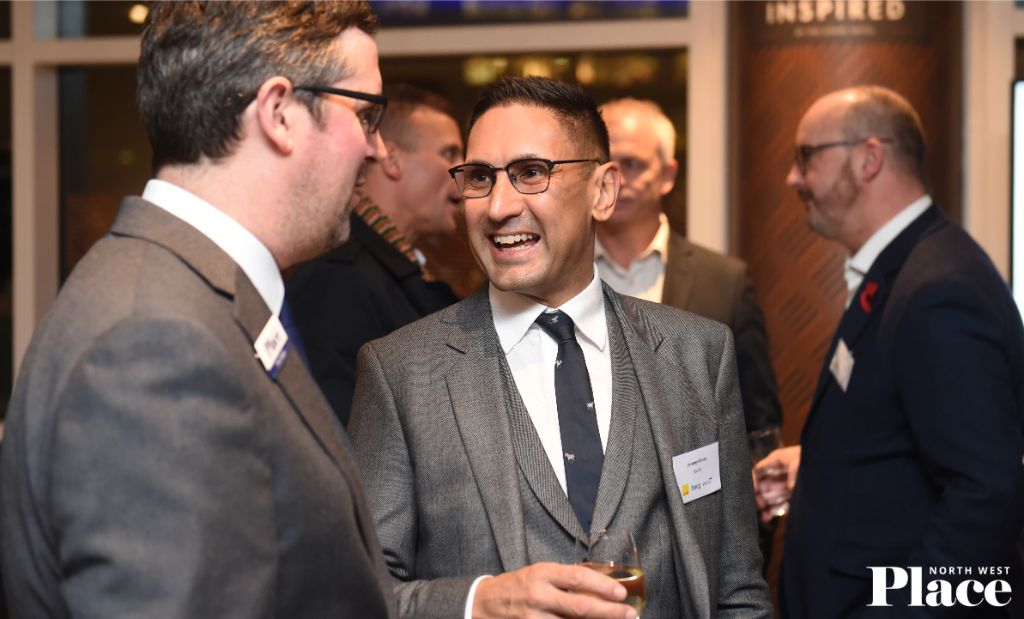
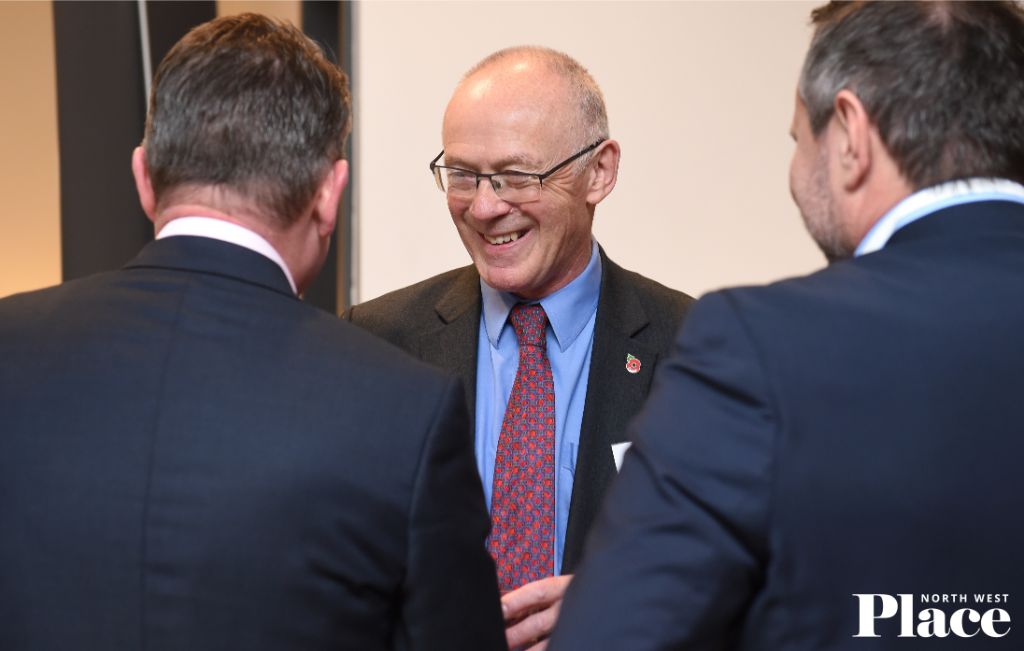
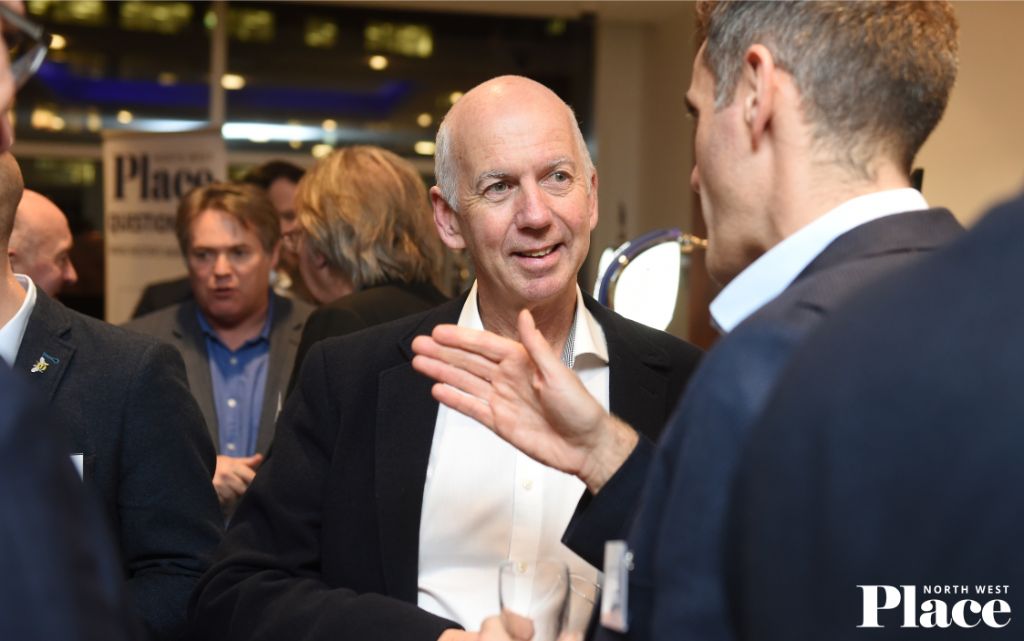
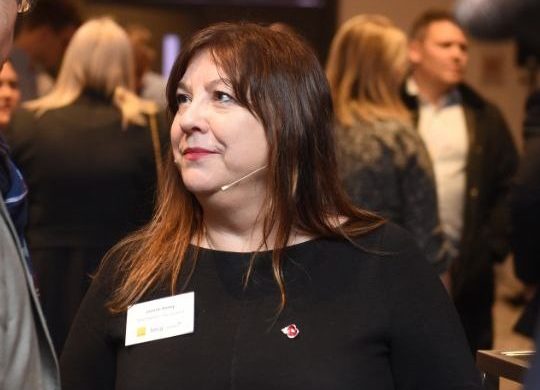
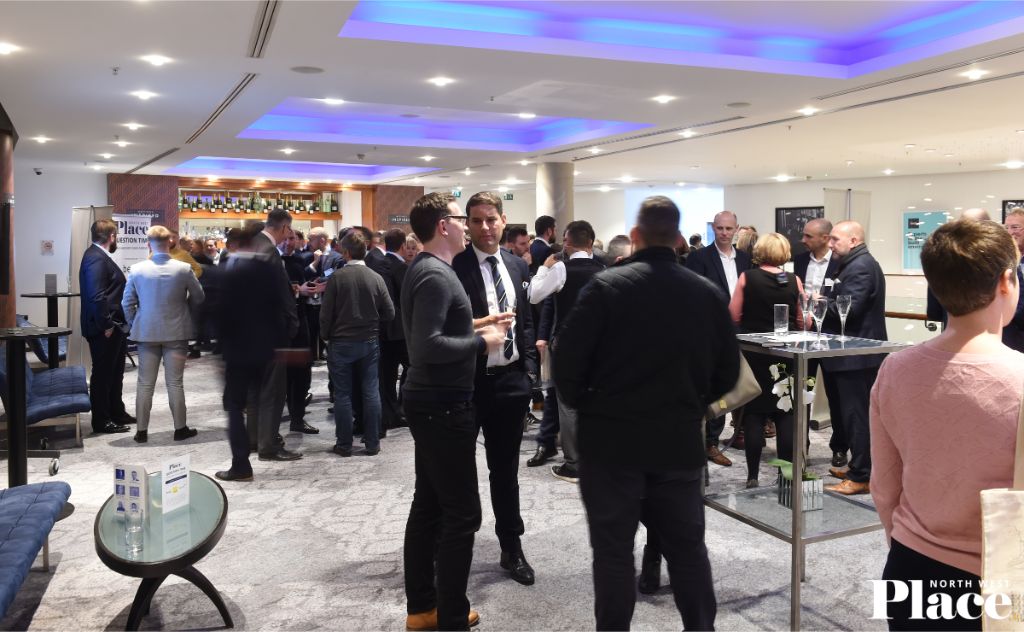
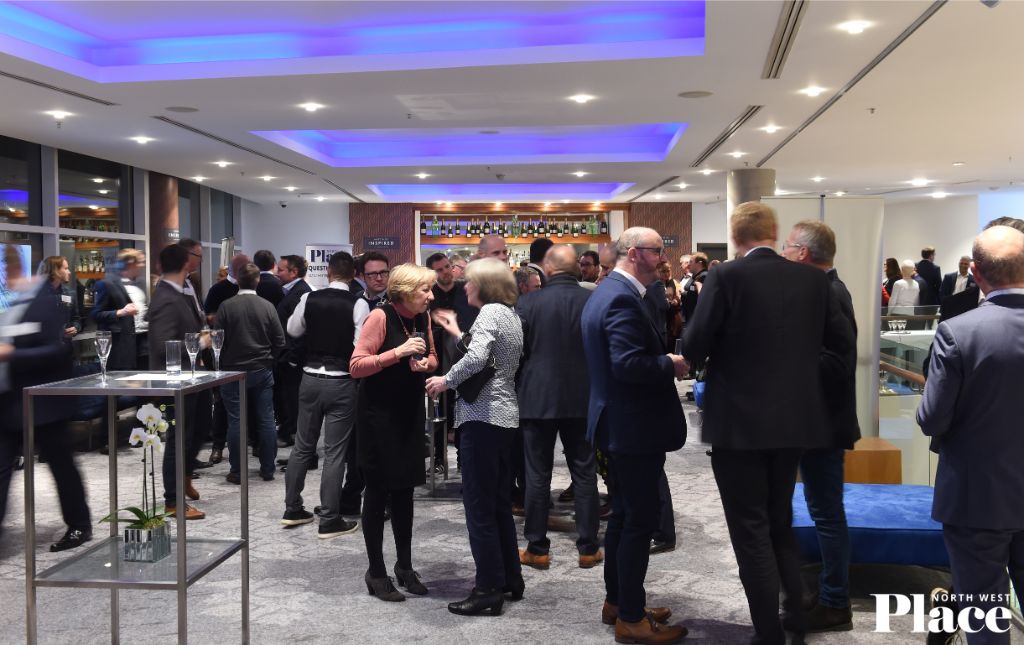
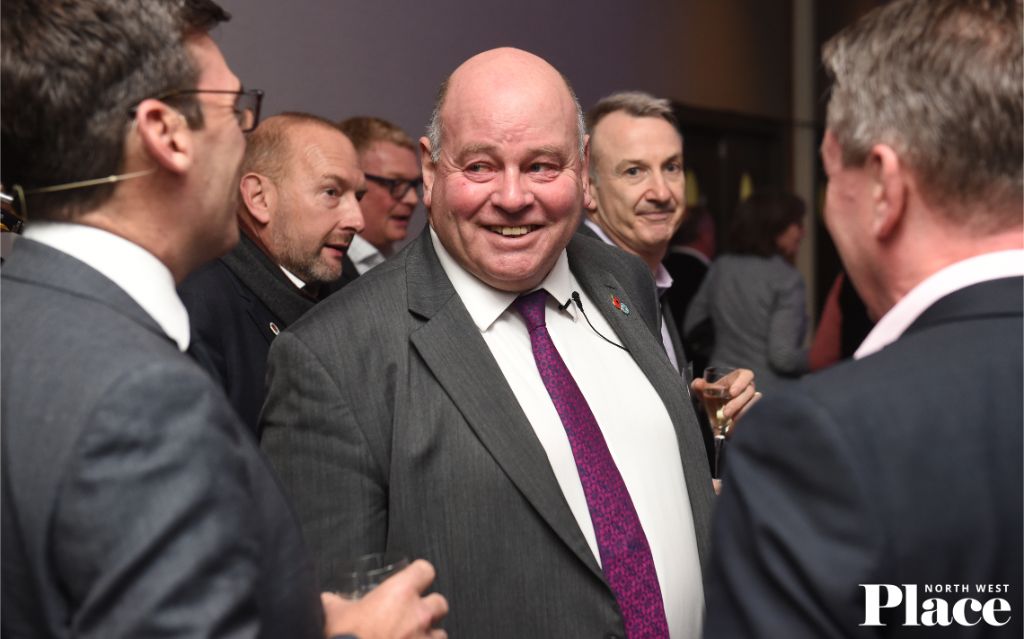
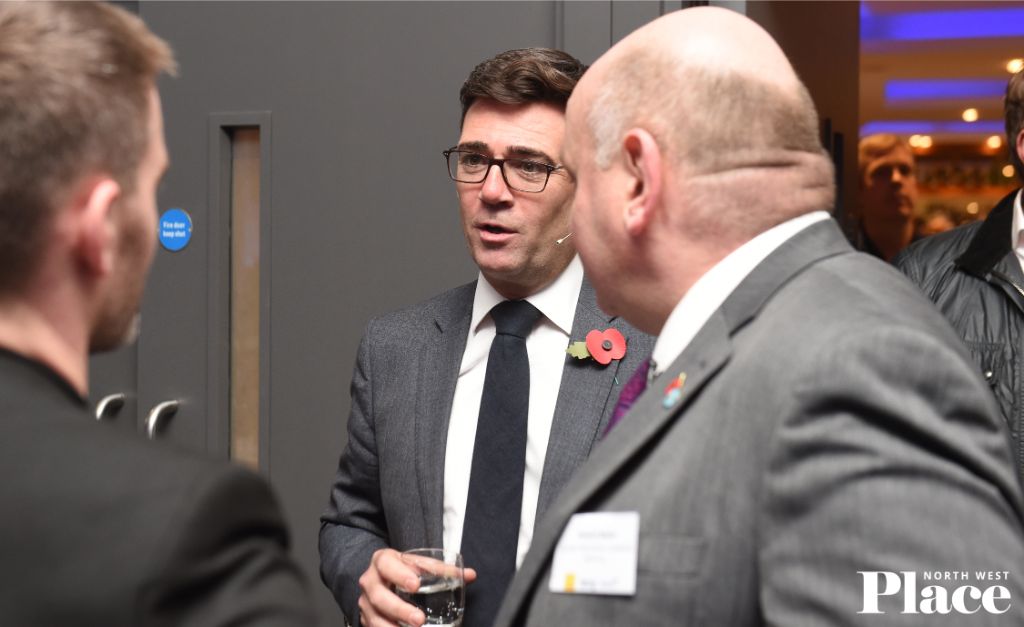
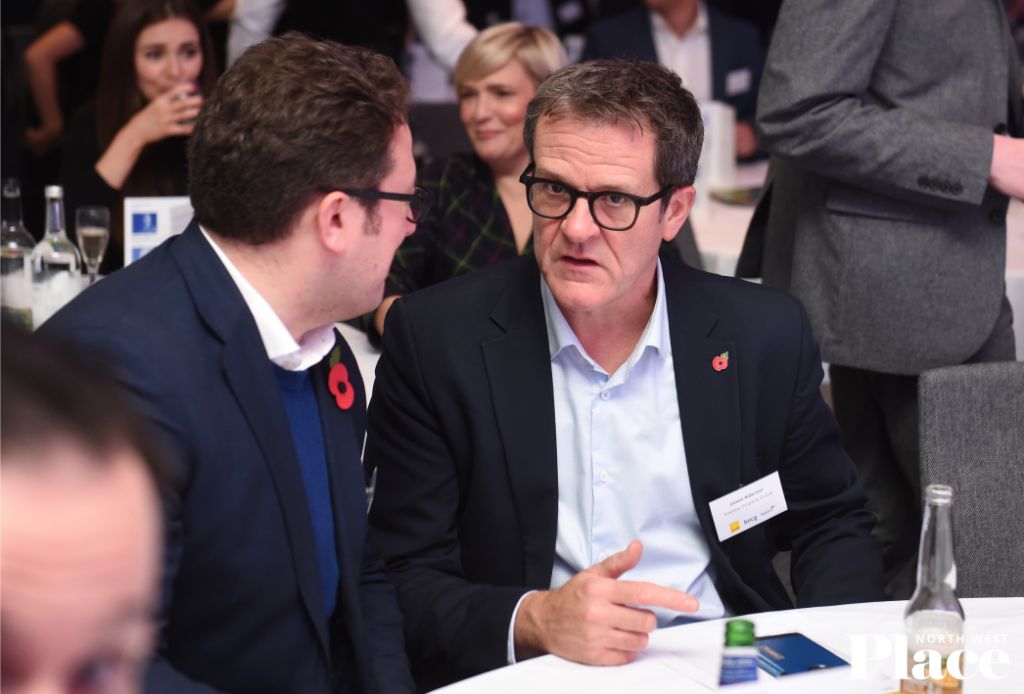
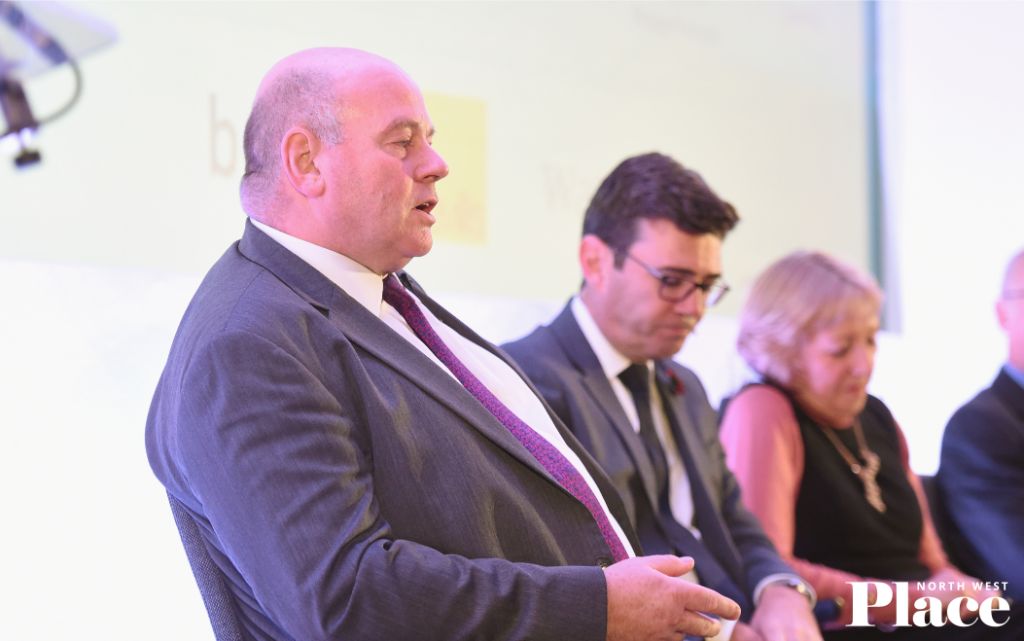
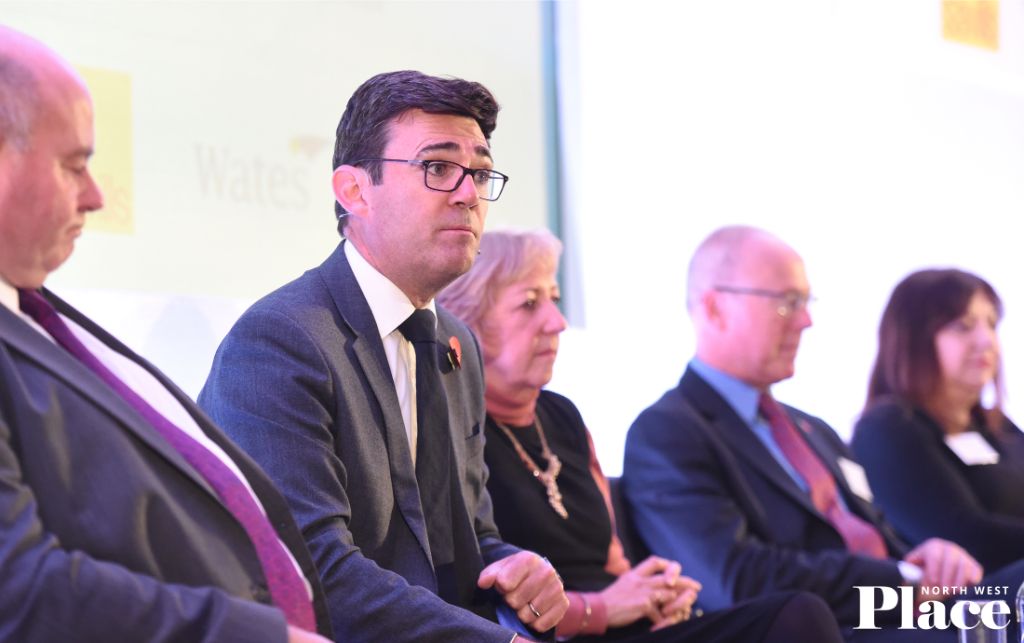
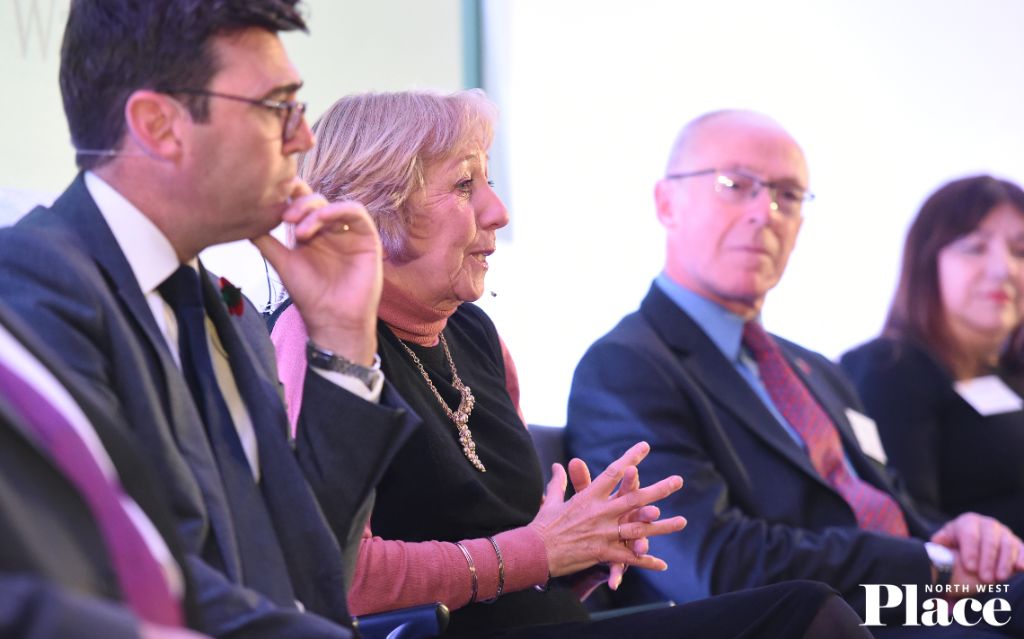
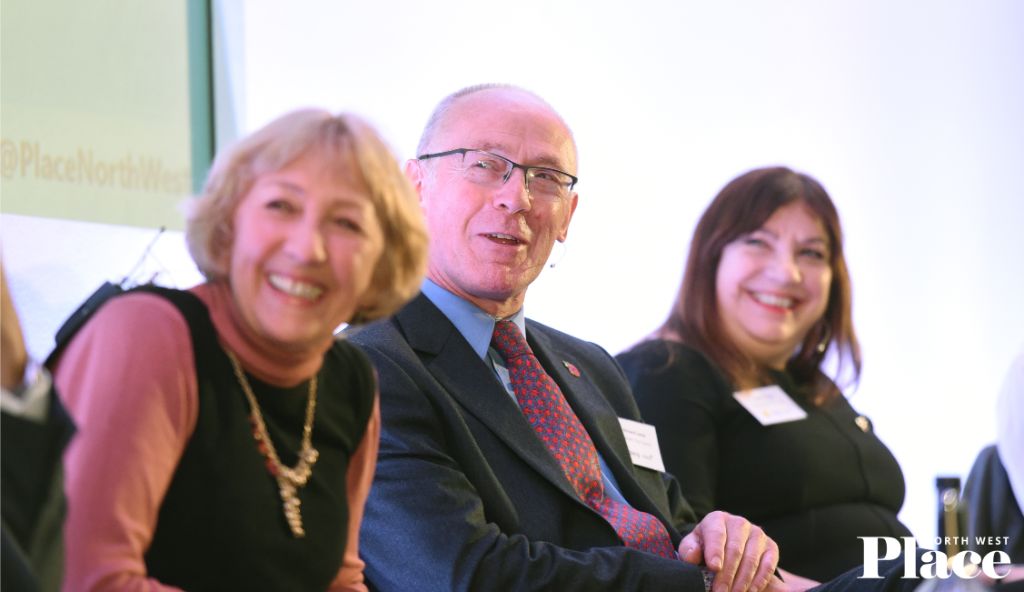
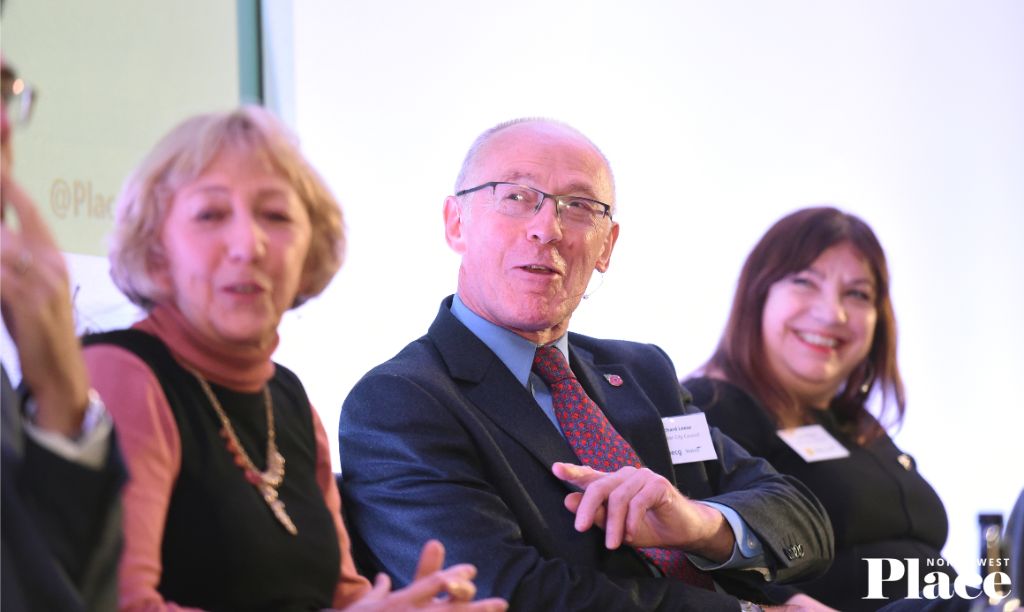
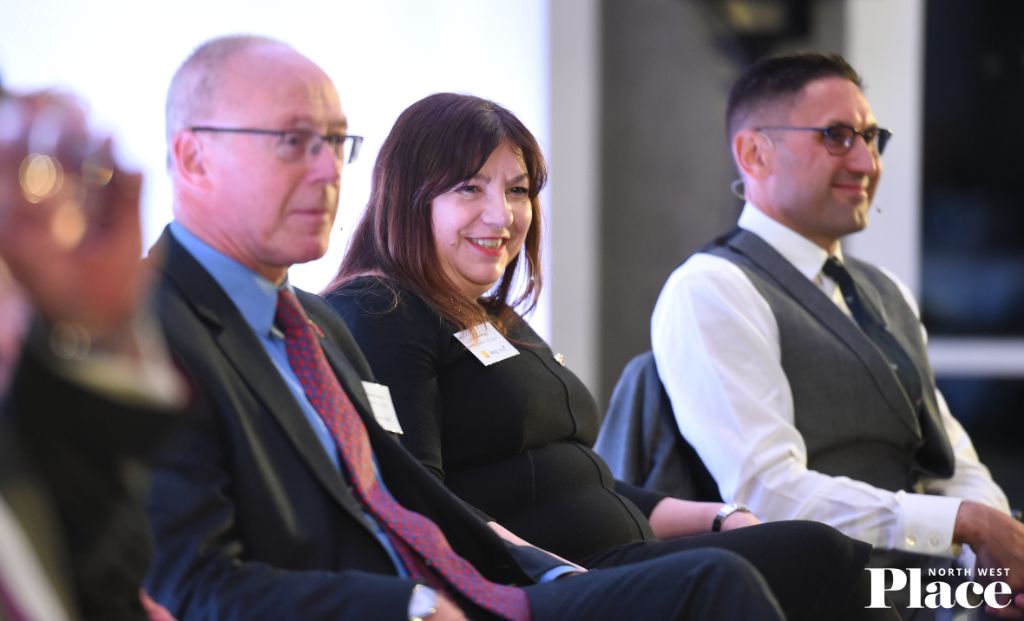
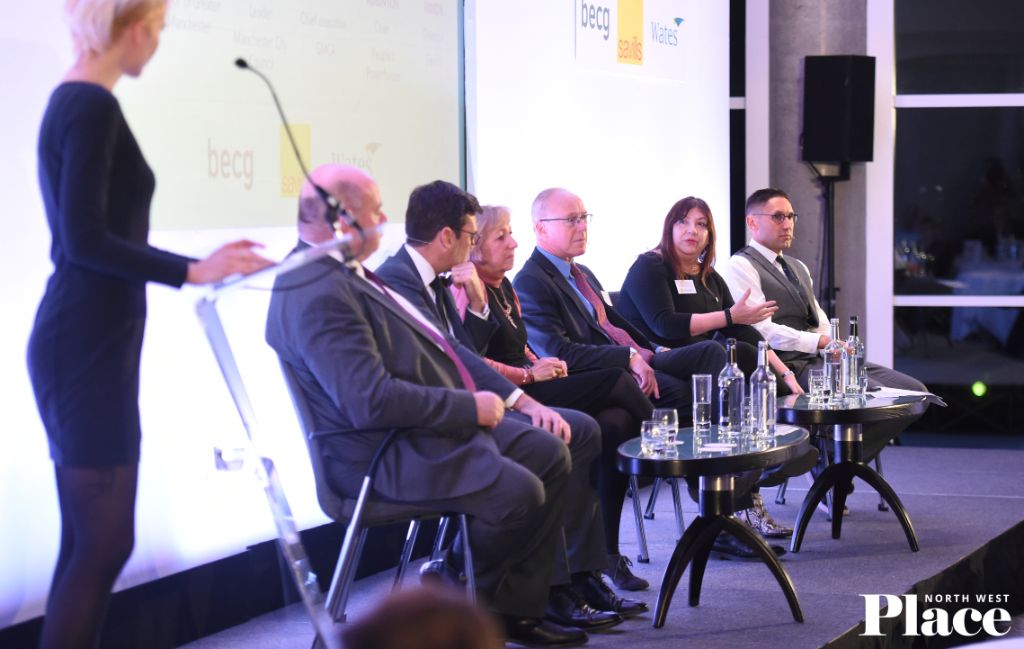
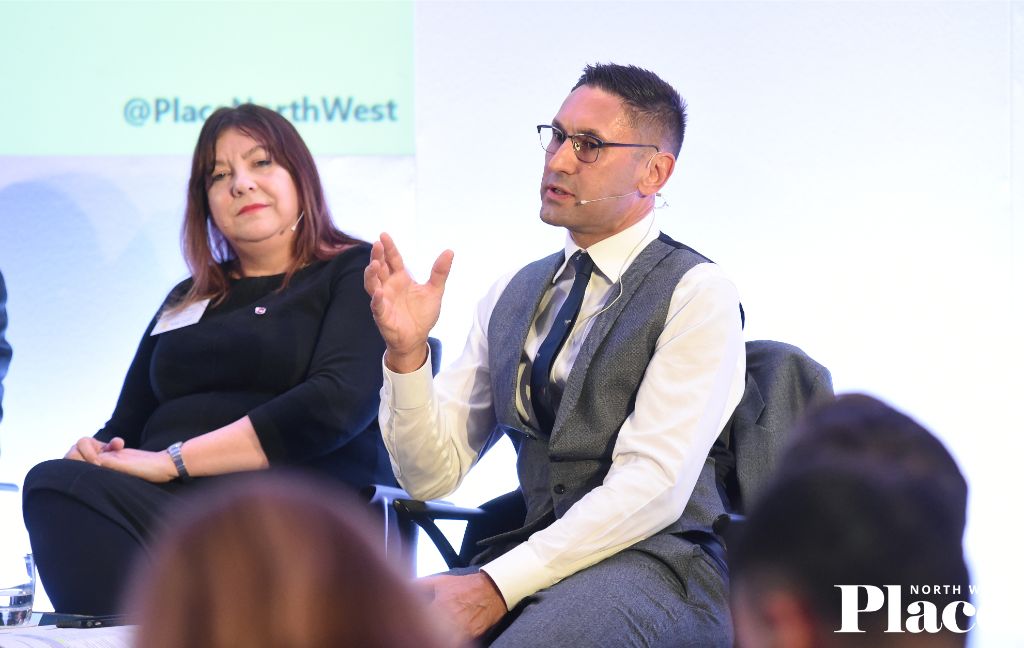


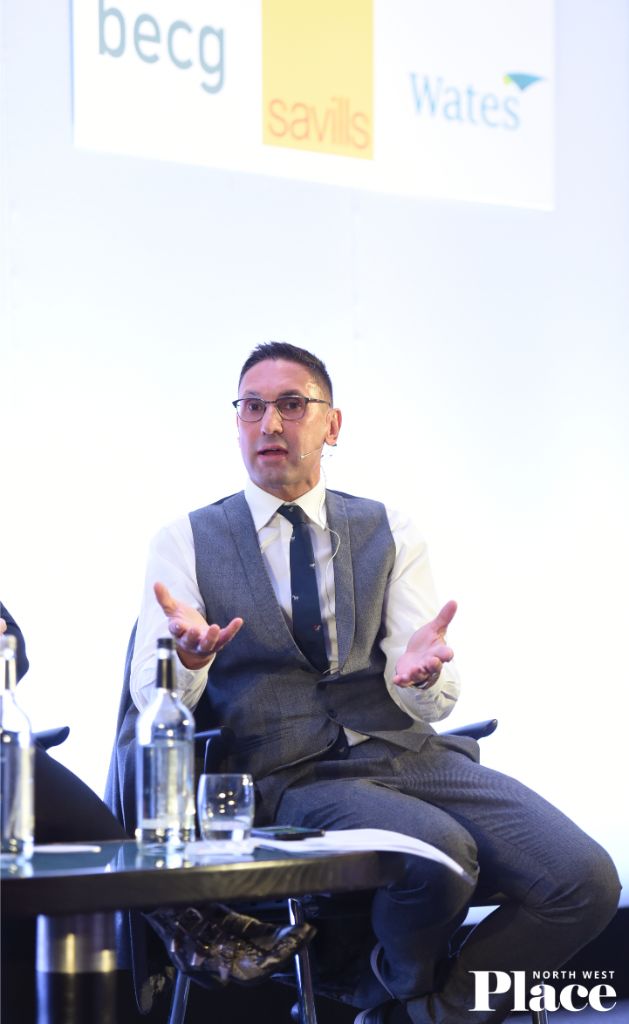
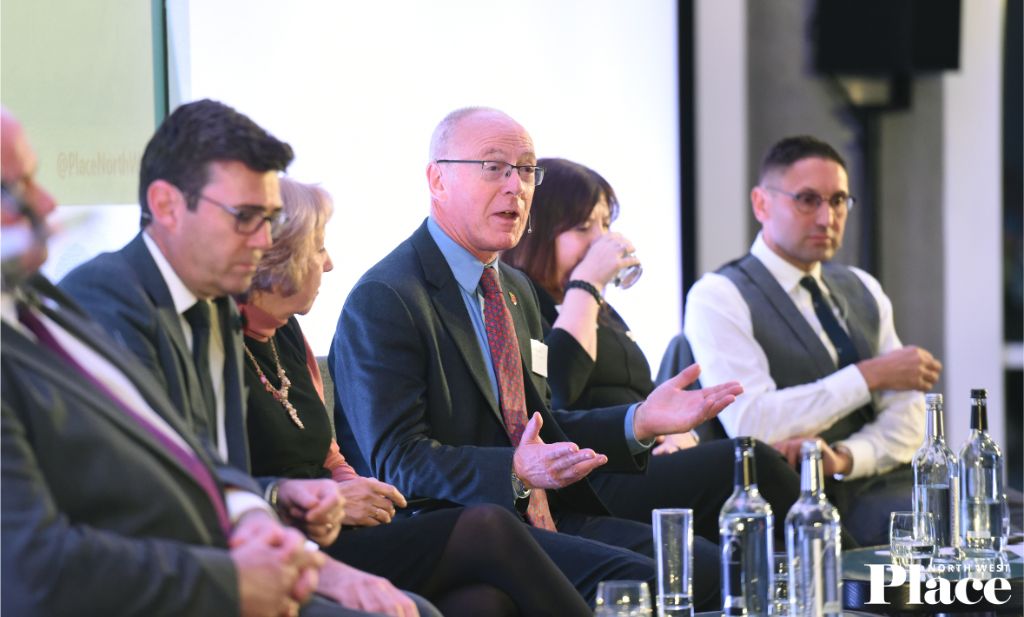
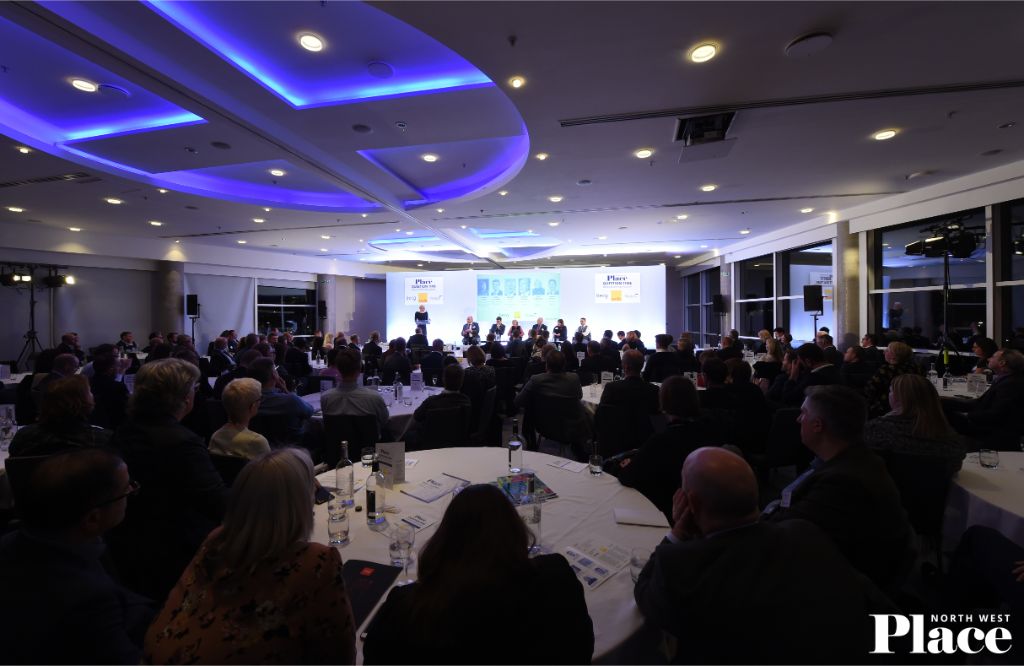
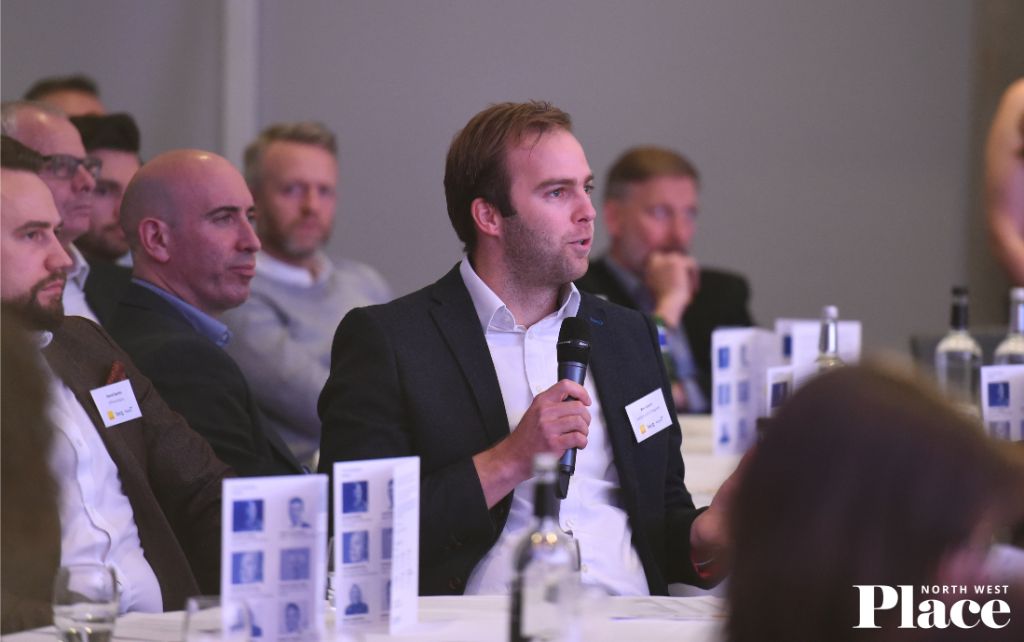
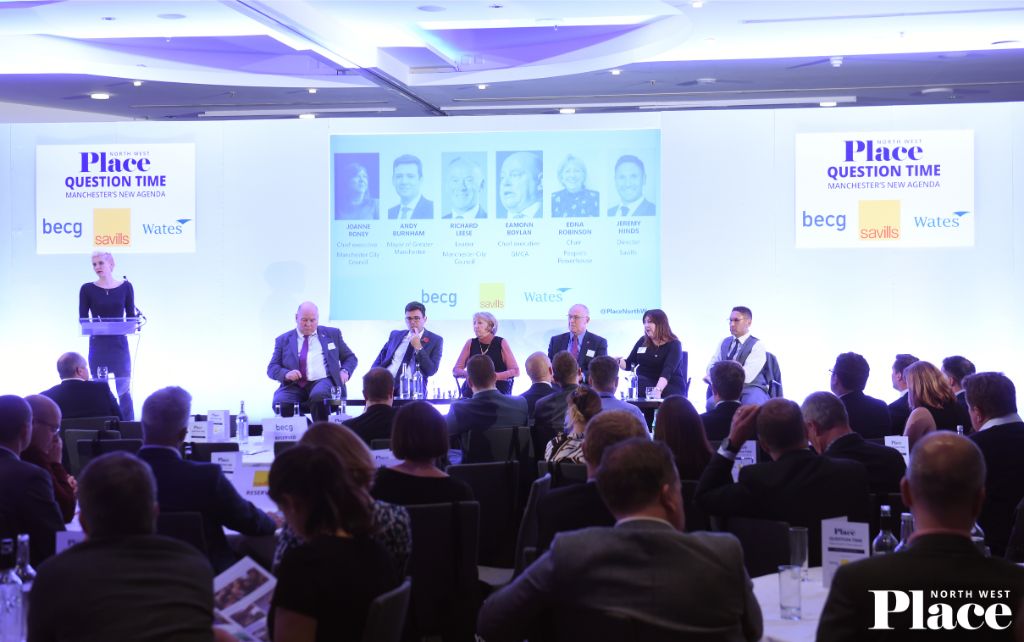
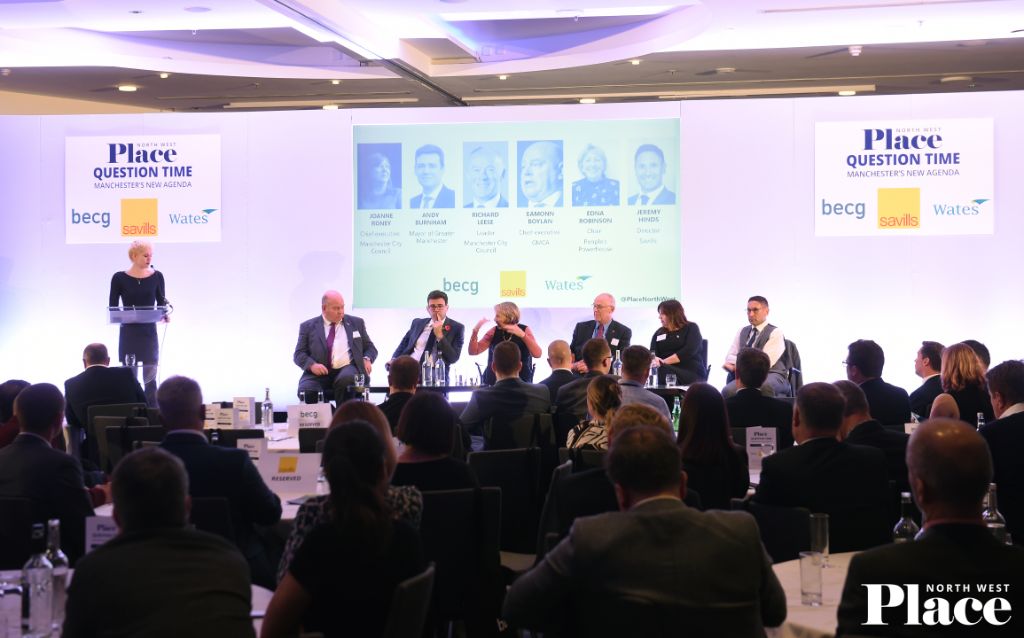
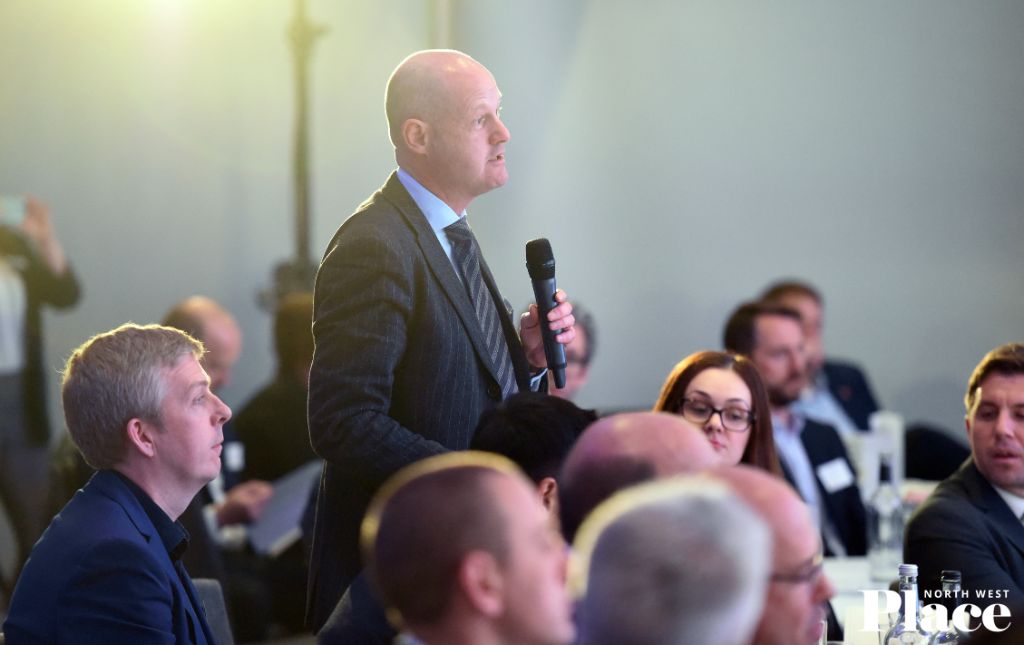
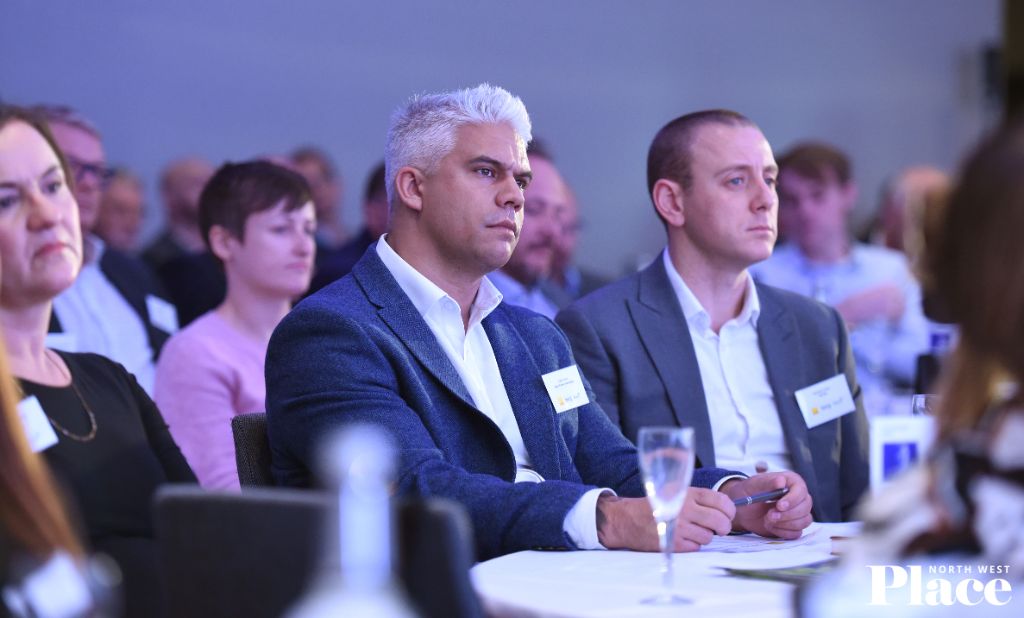
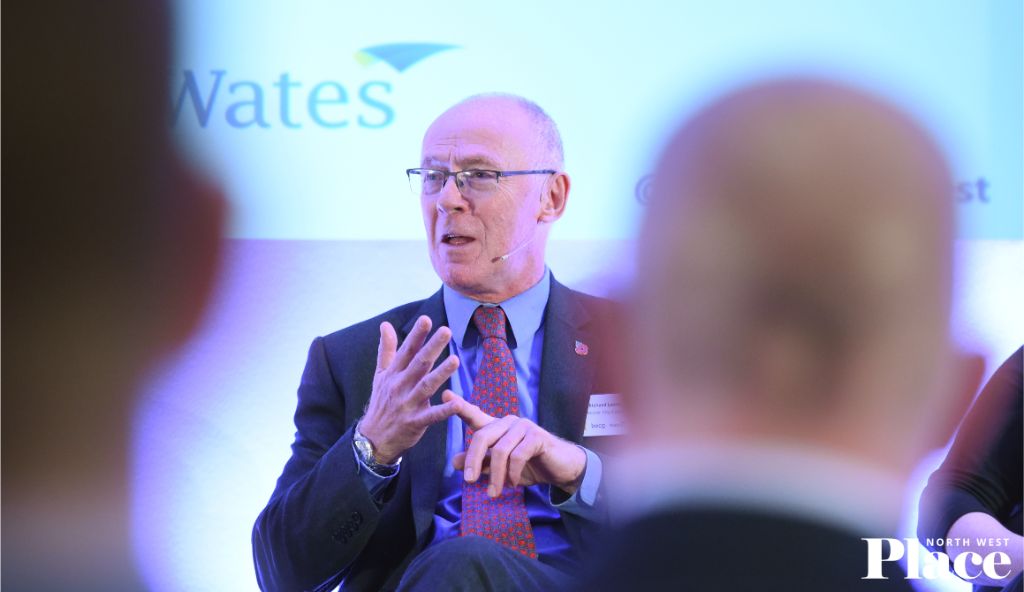
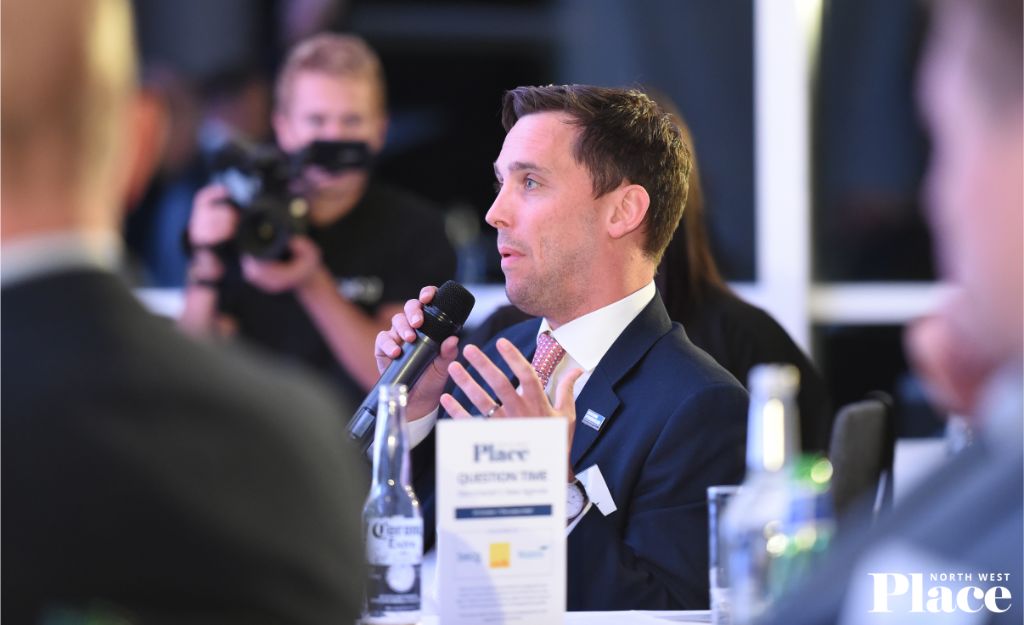

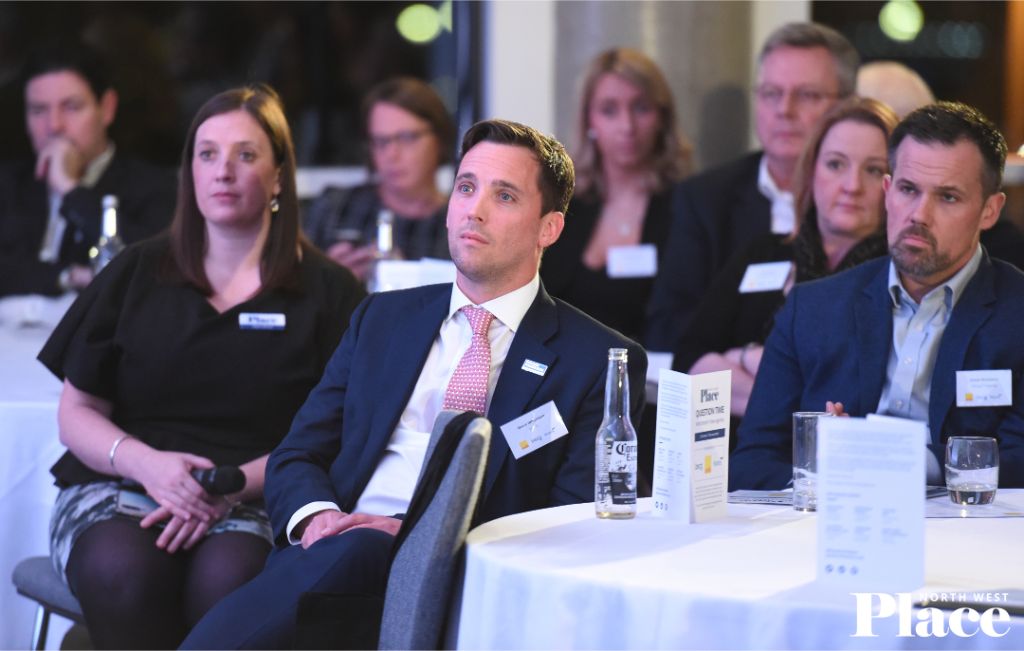
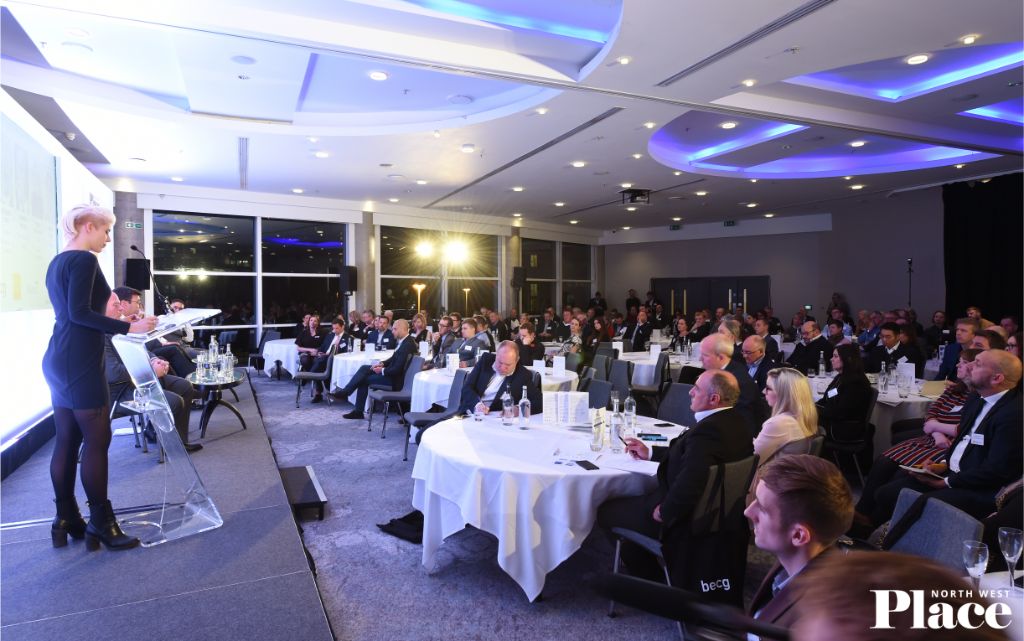
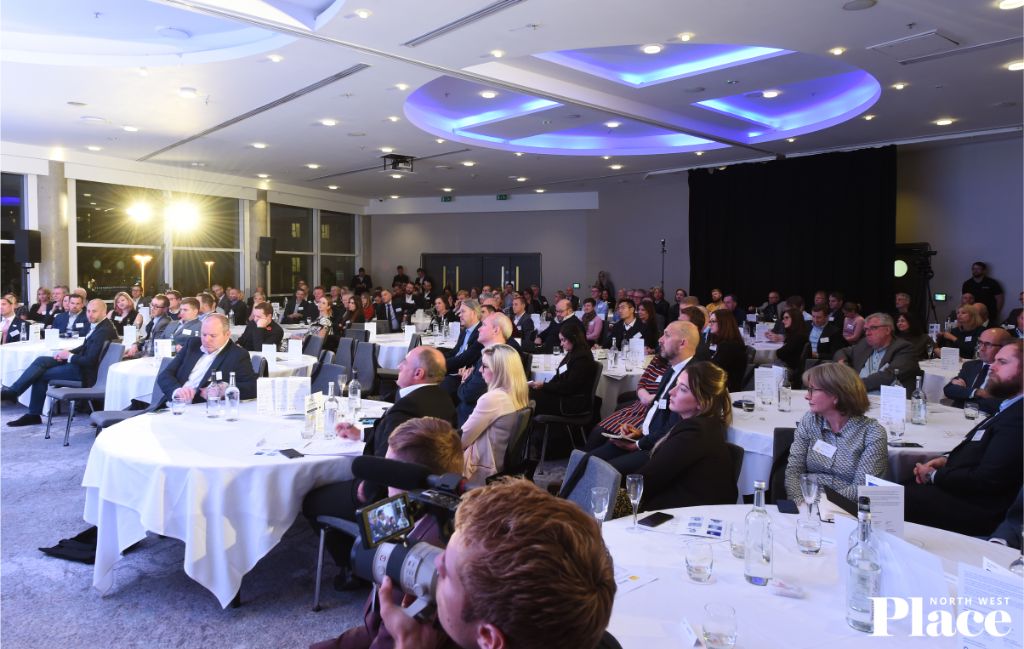
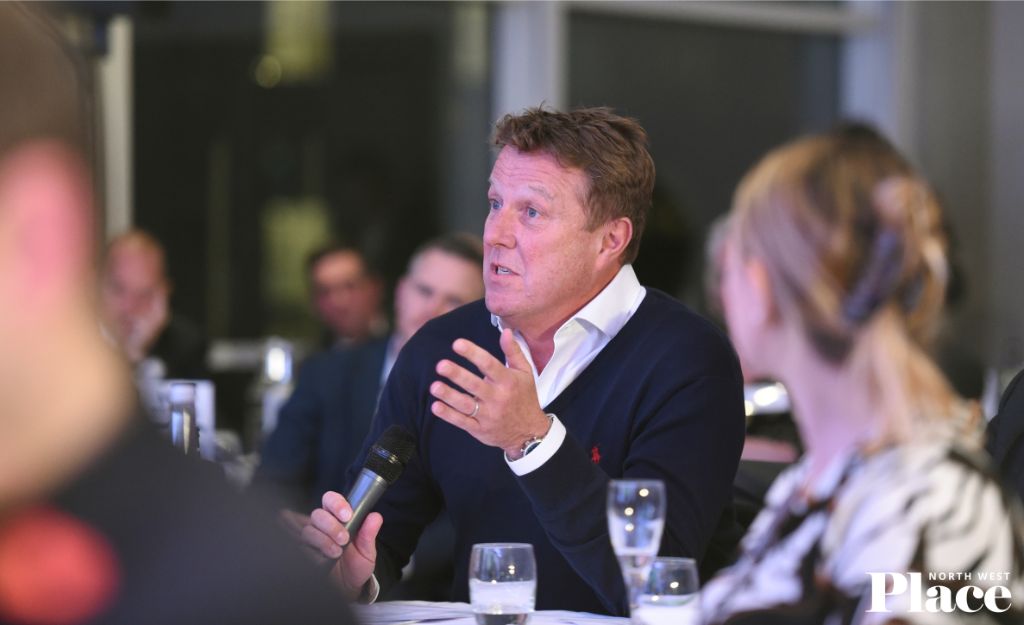
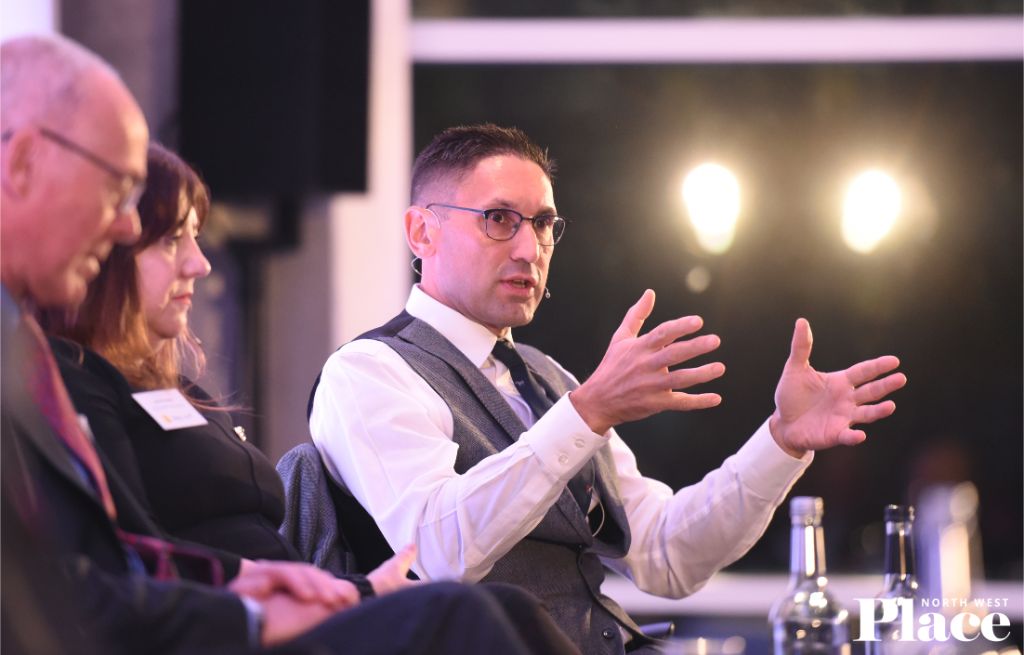
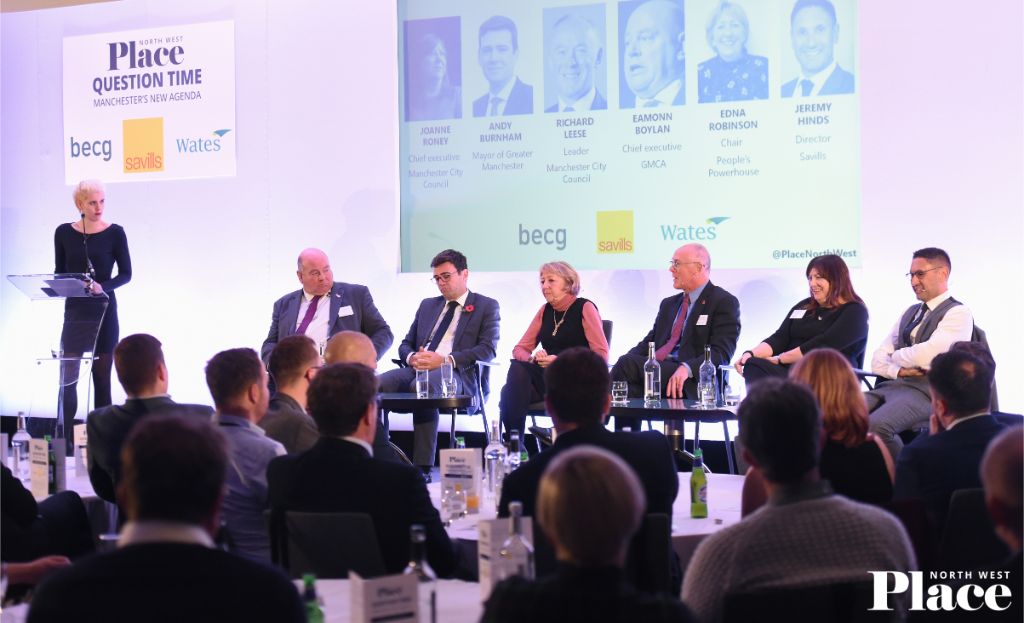
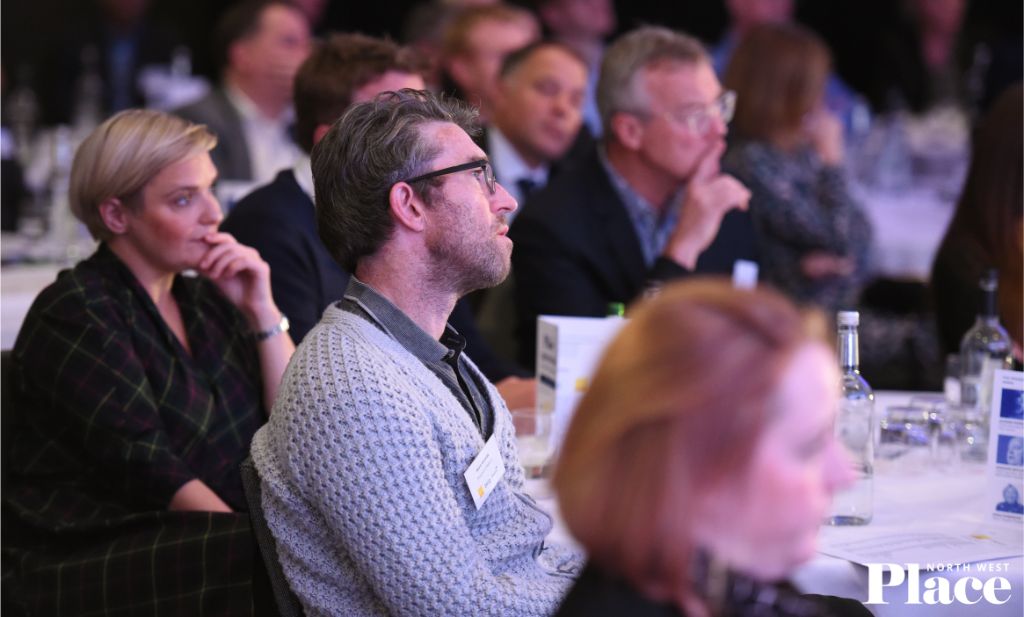
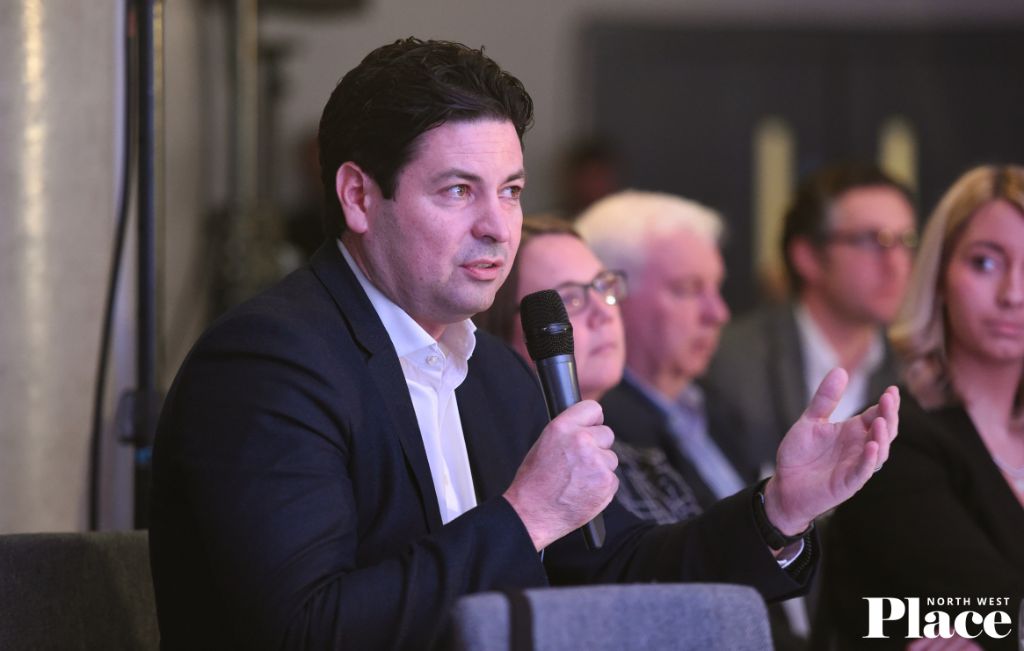
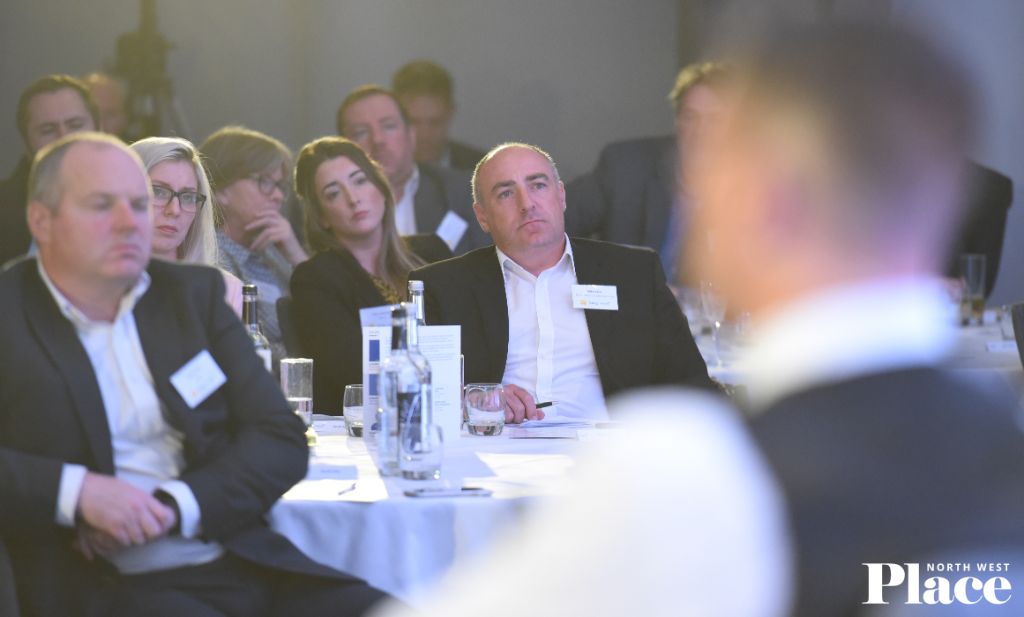
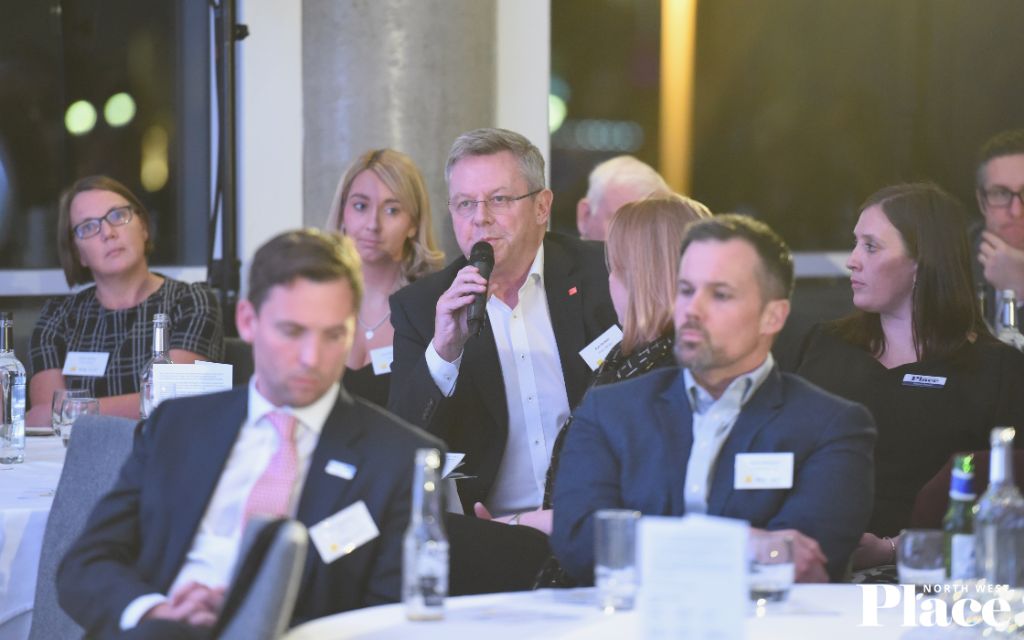

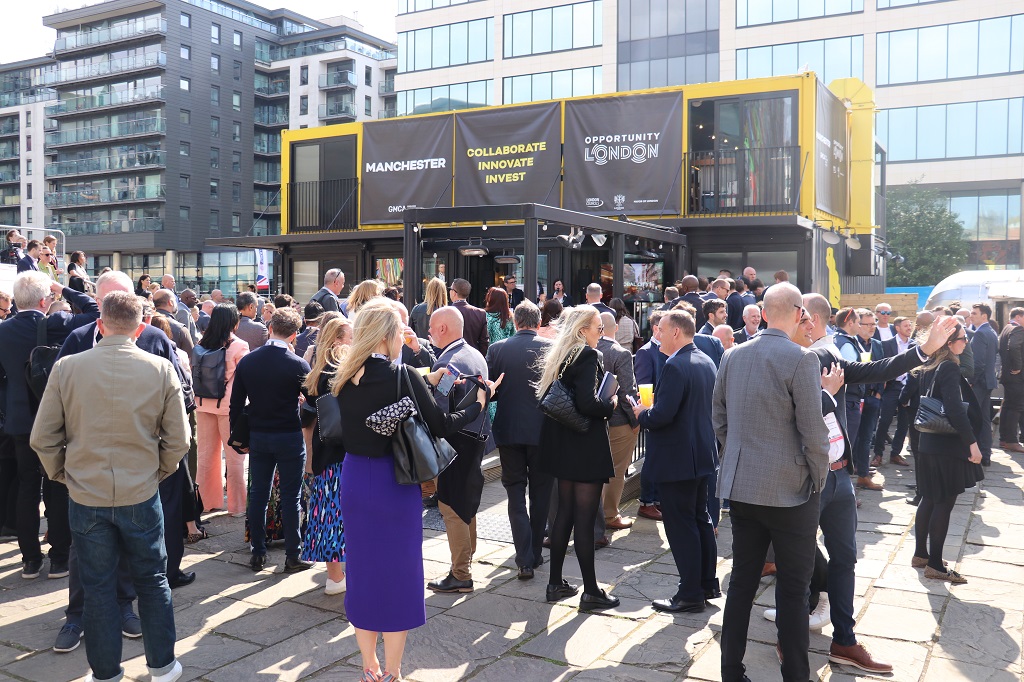

I must be honest, the last time I was in central Manchester it felt a bit worn in parts. The Picadilly area is not a great gateway at all, and even the Northern Quarter is feeling slightly over-developed now. The prestige of Kings Street as high end retail has gone now as well. No use blaming the private sector for solutions that really are in the gift of the public sector – developers are not place makers, they look for a quick return and move on to the next scheme. Naive to believe otherwise. Development wise, too much speculative tat appears to have been waved through.
By Mark Gilbertson